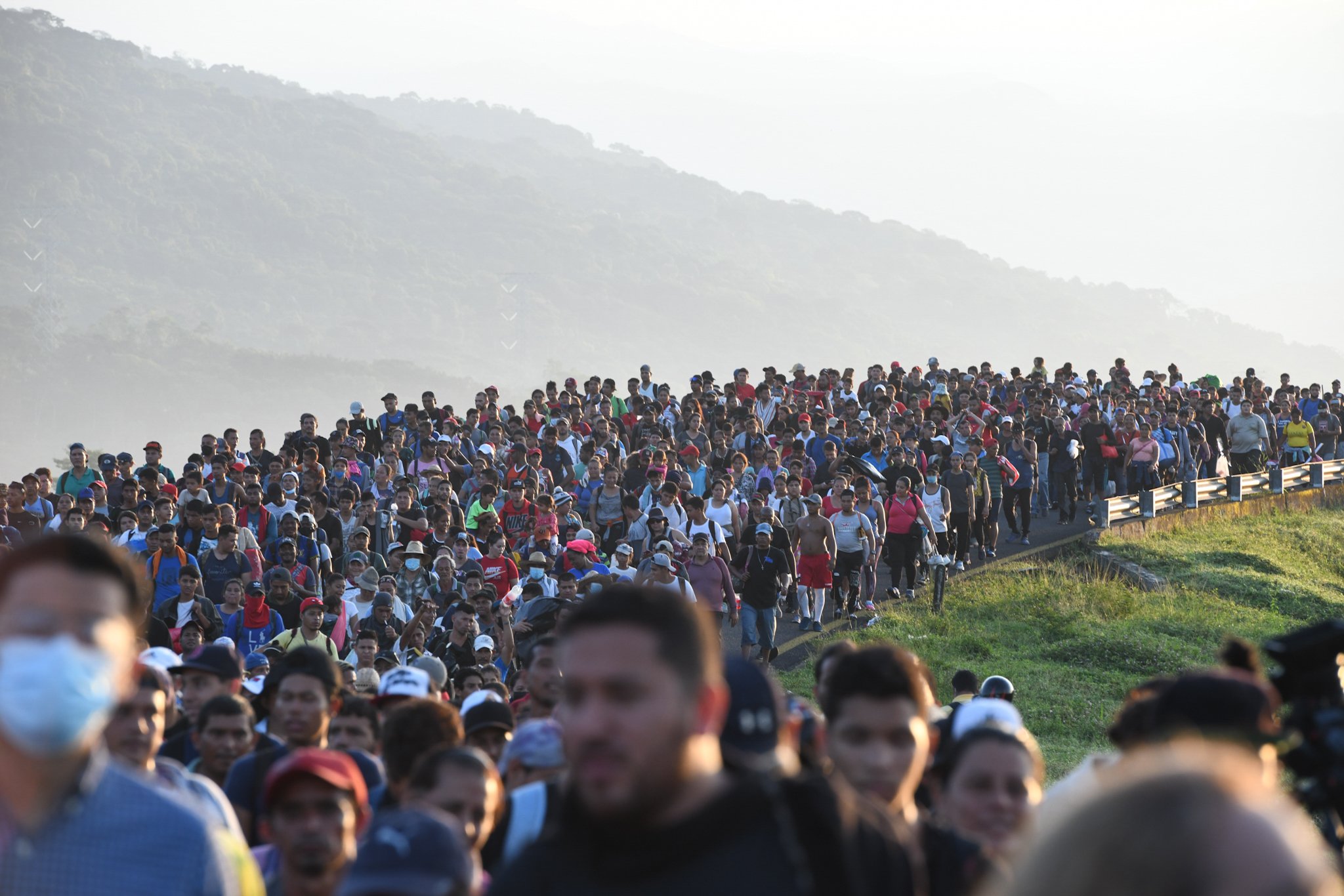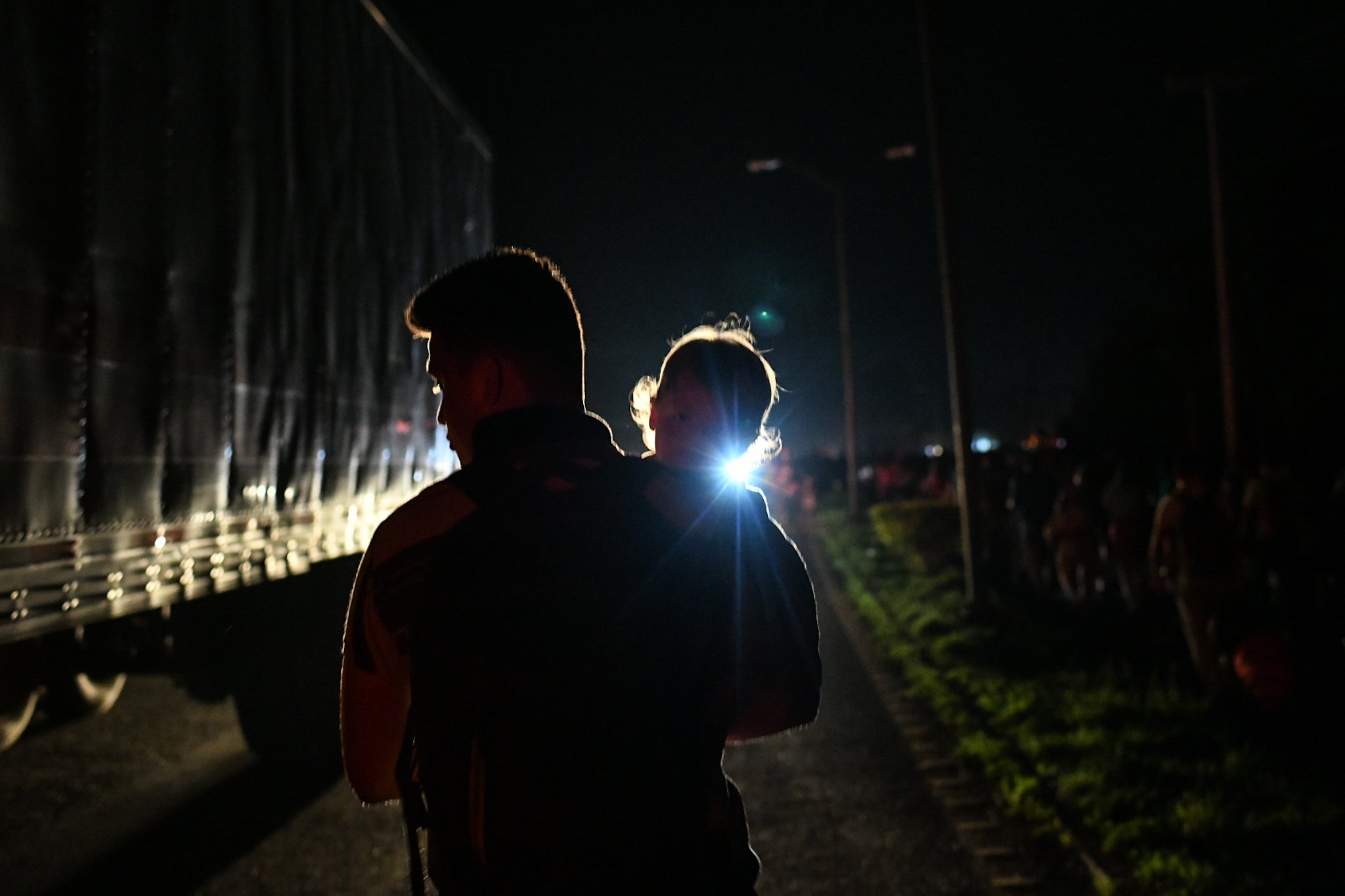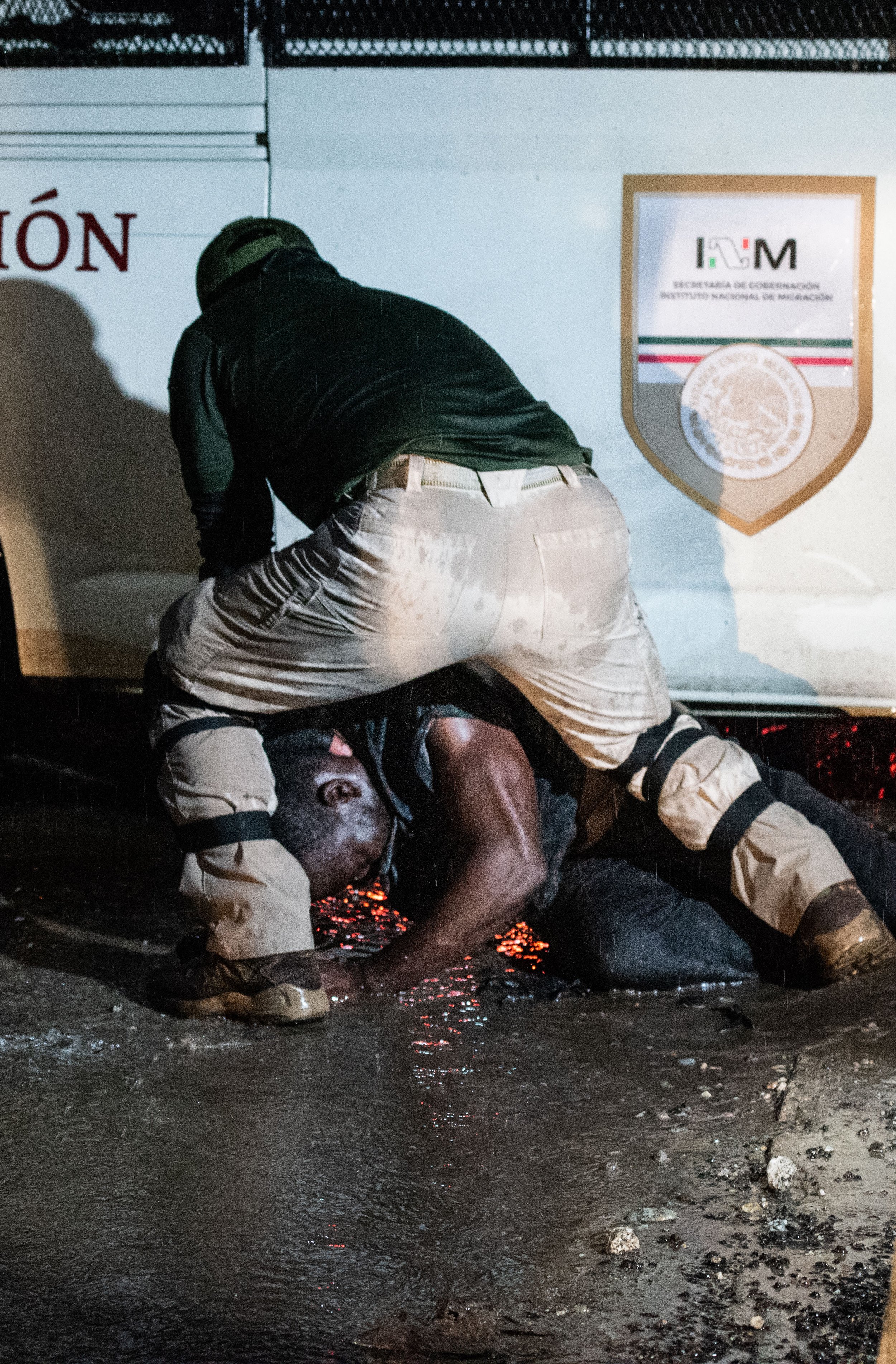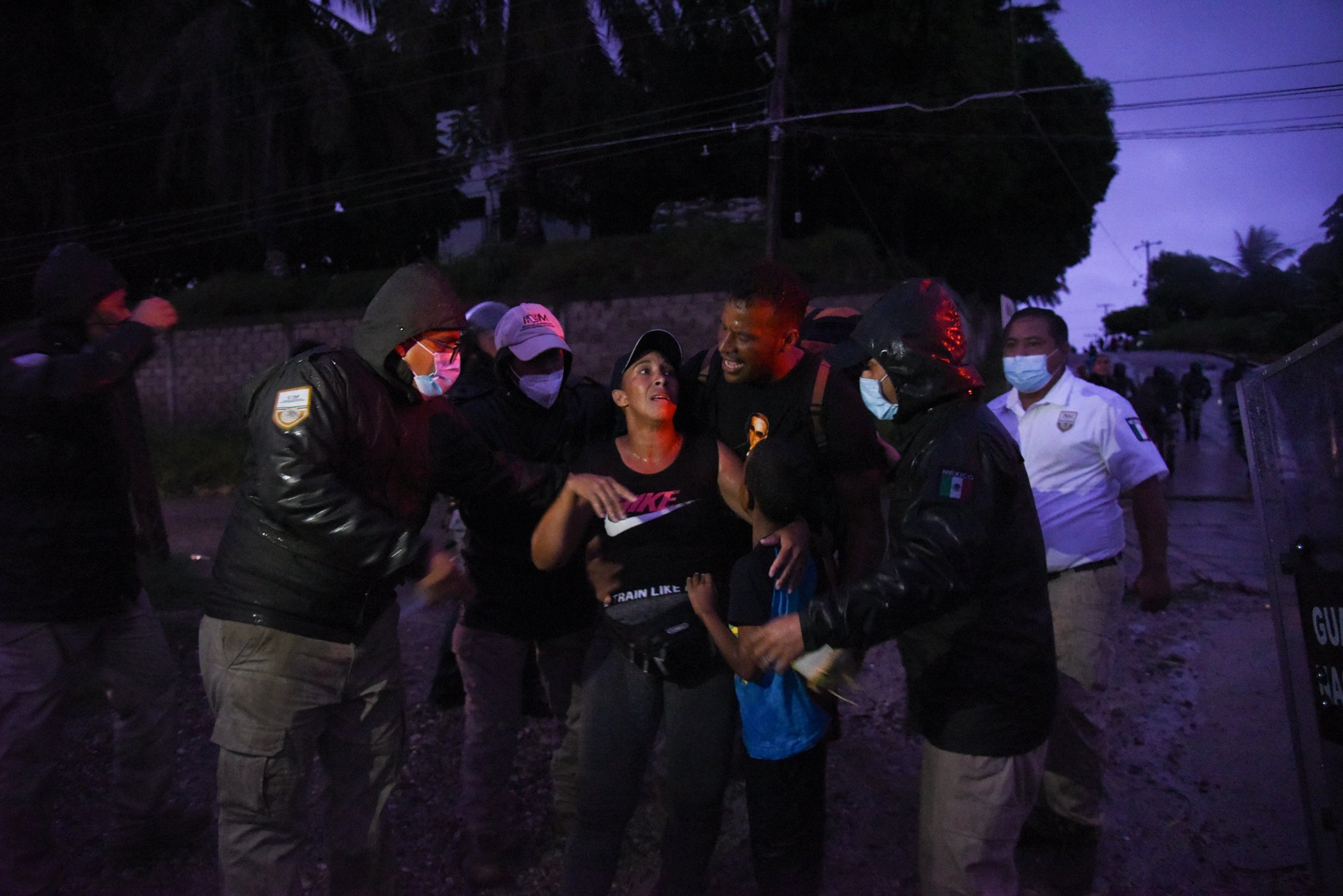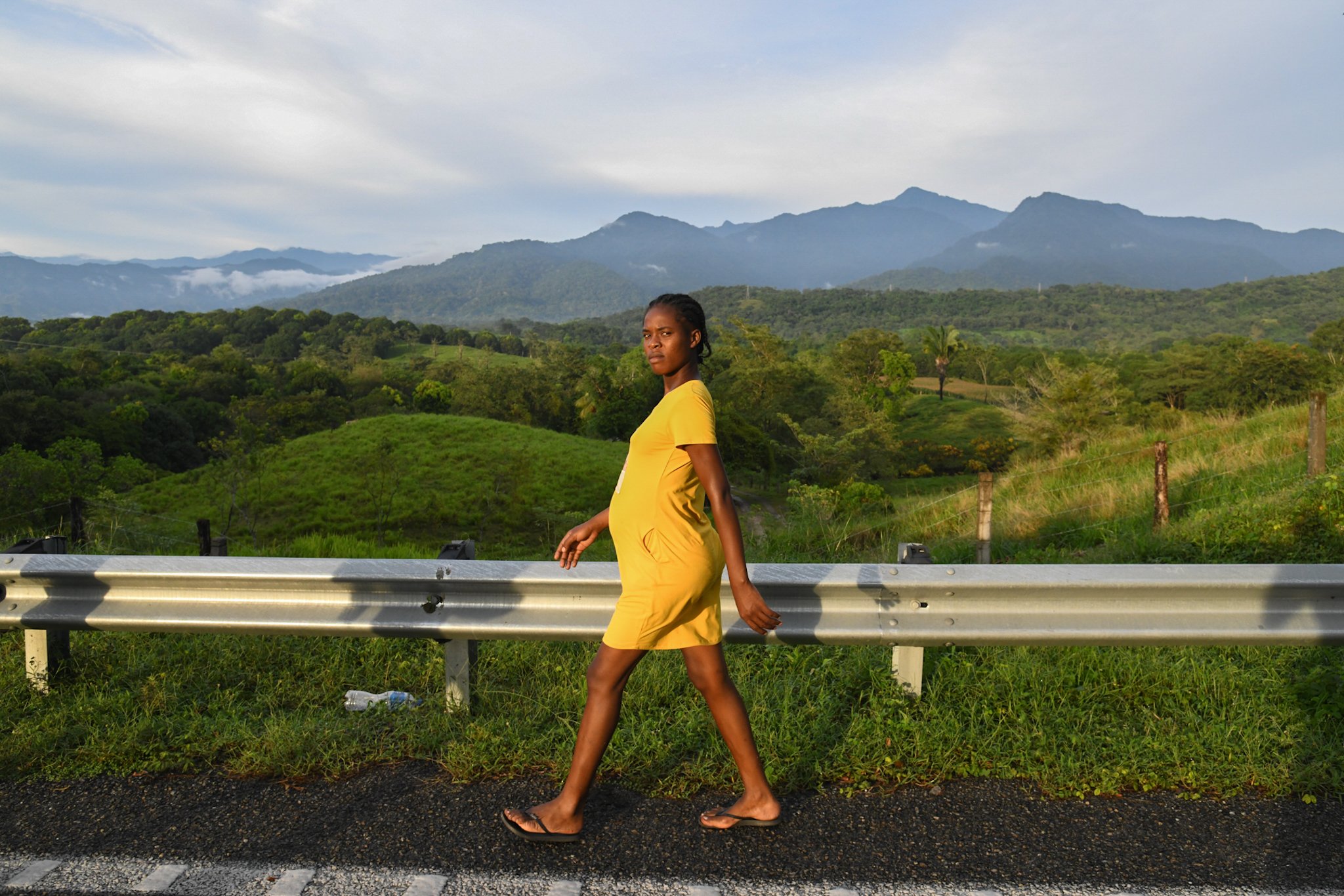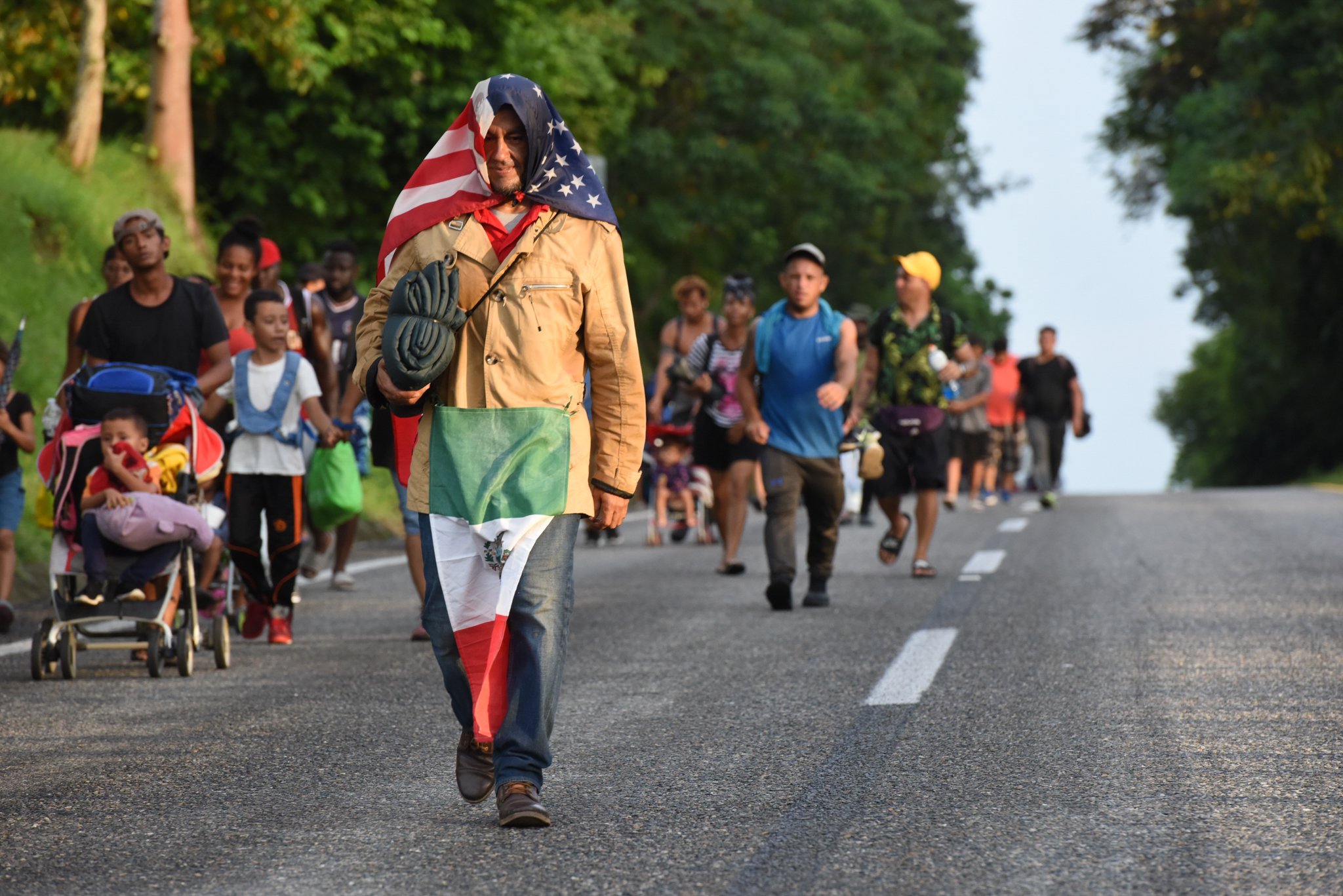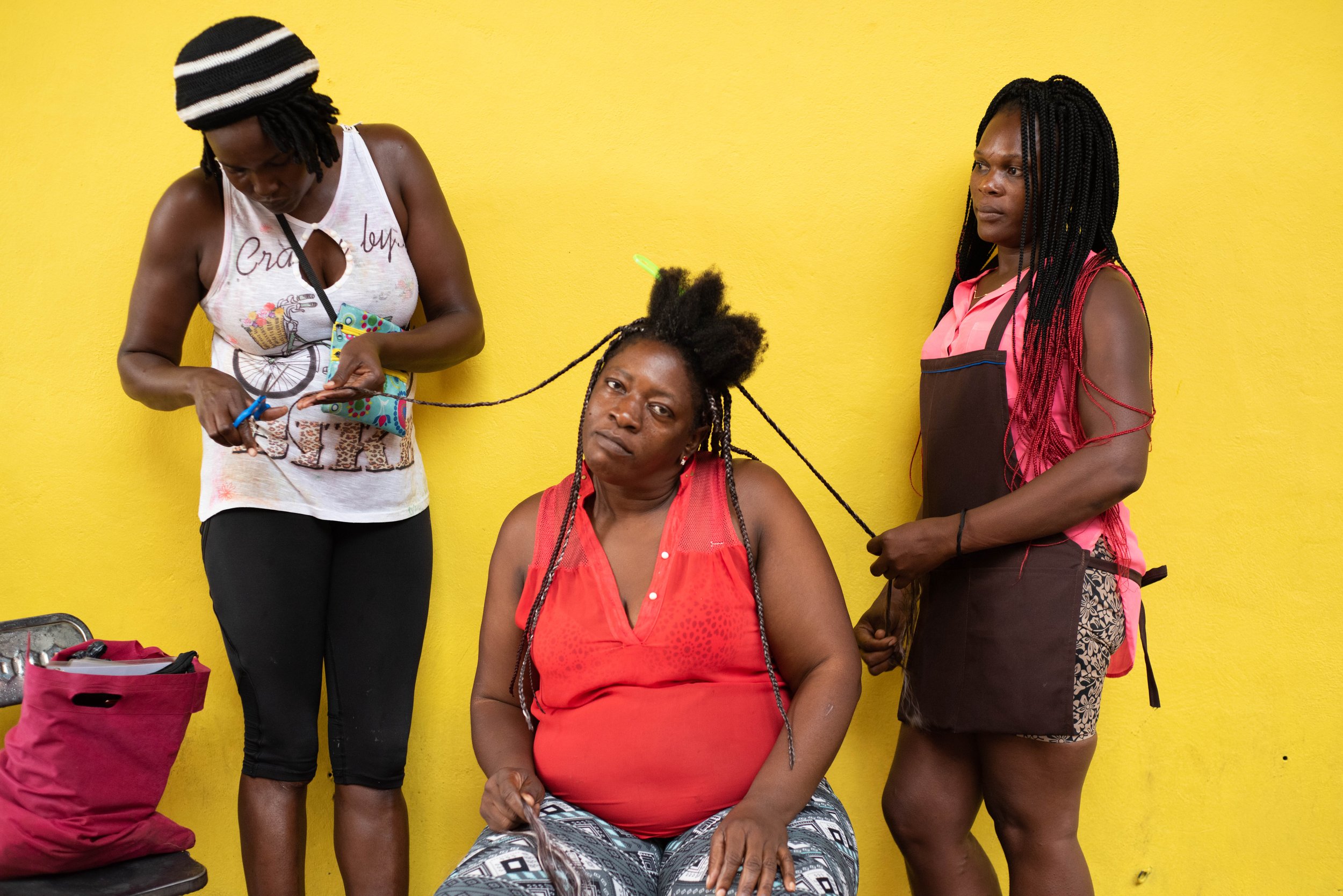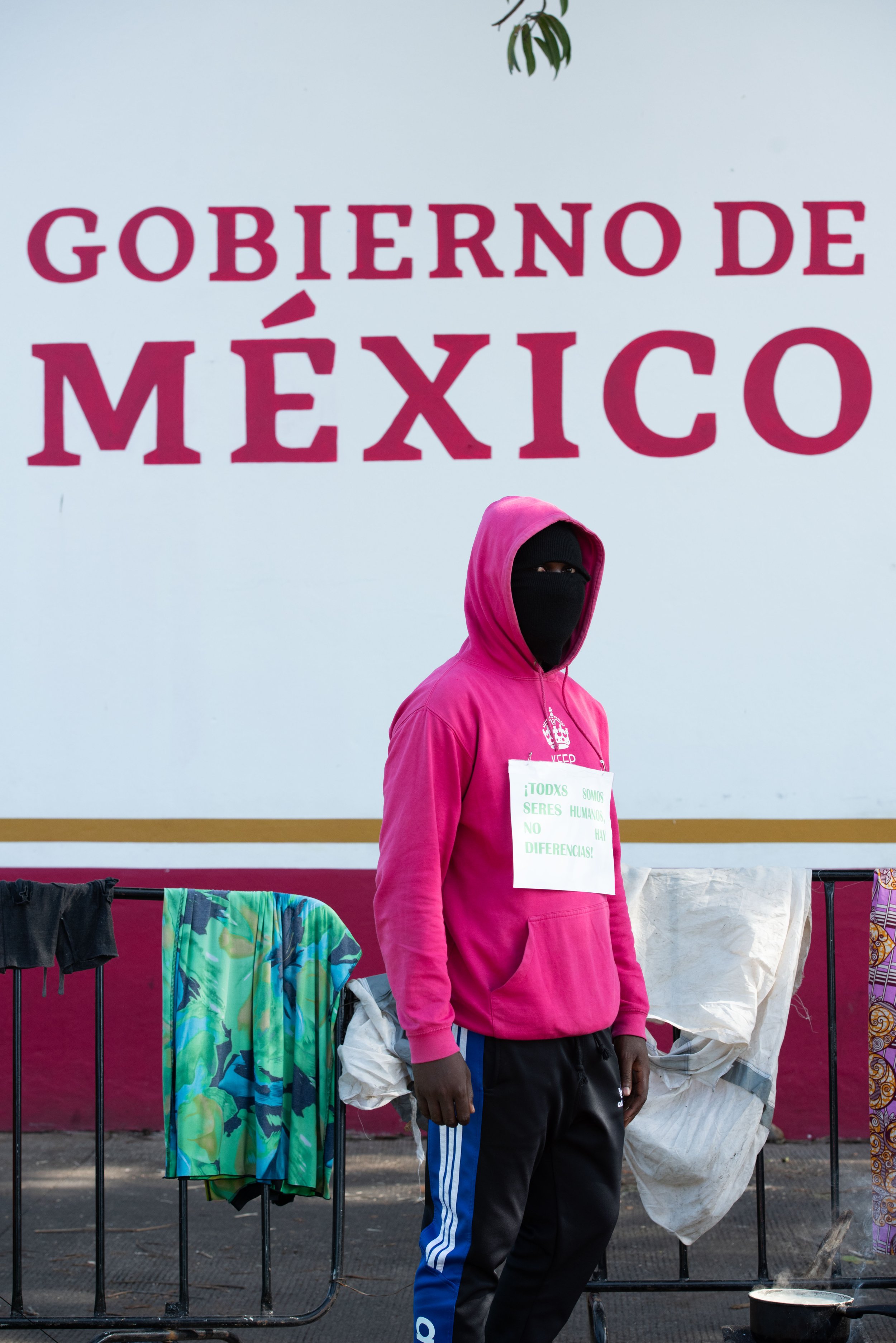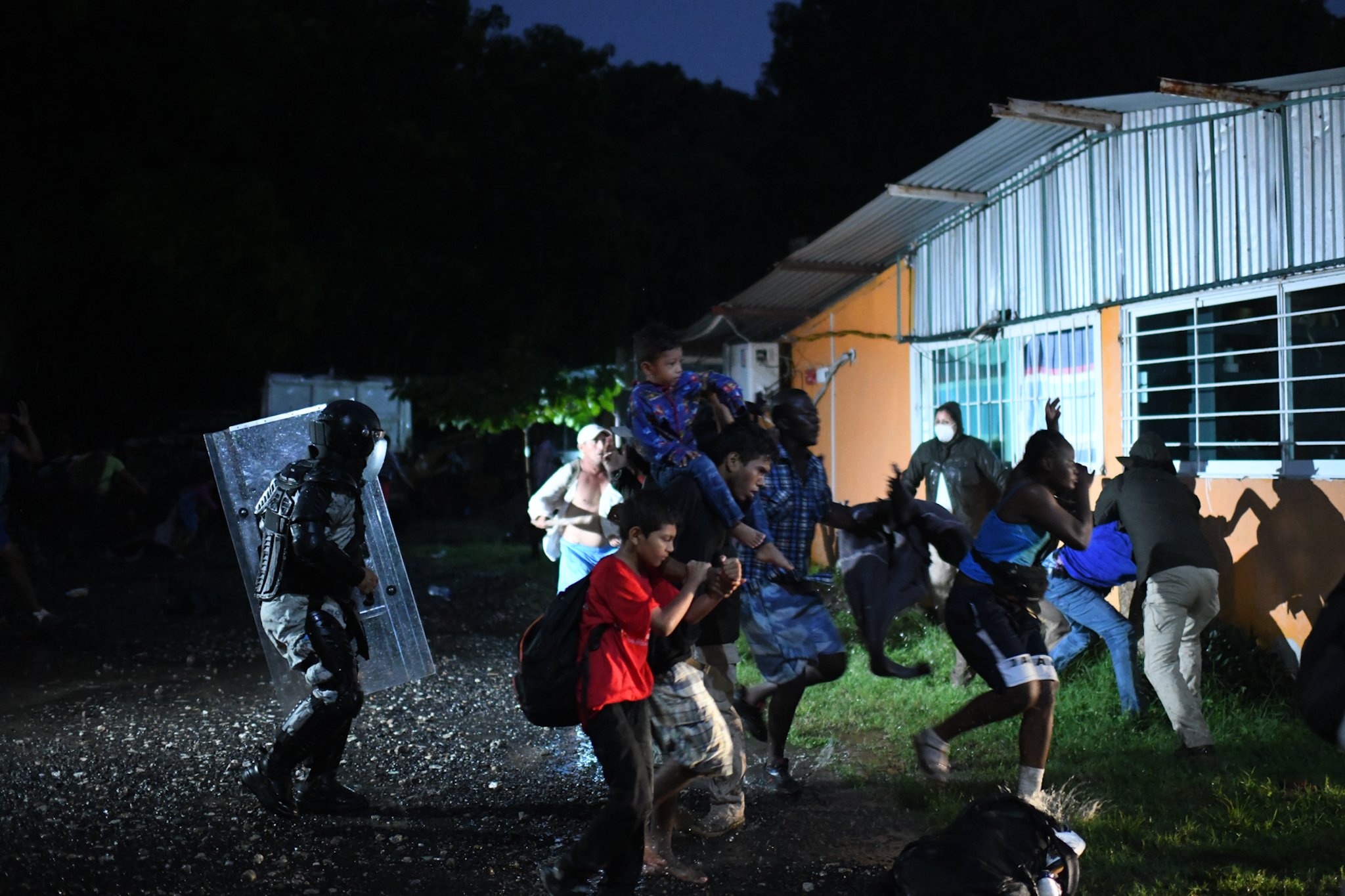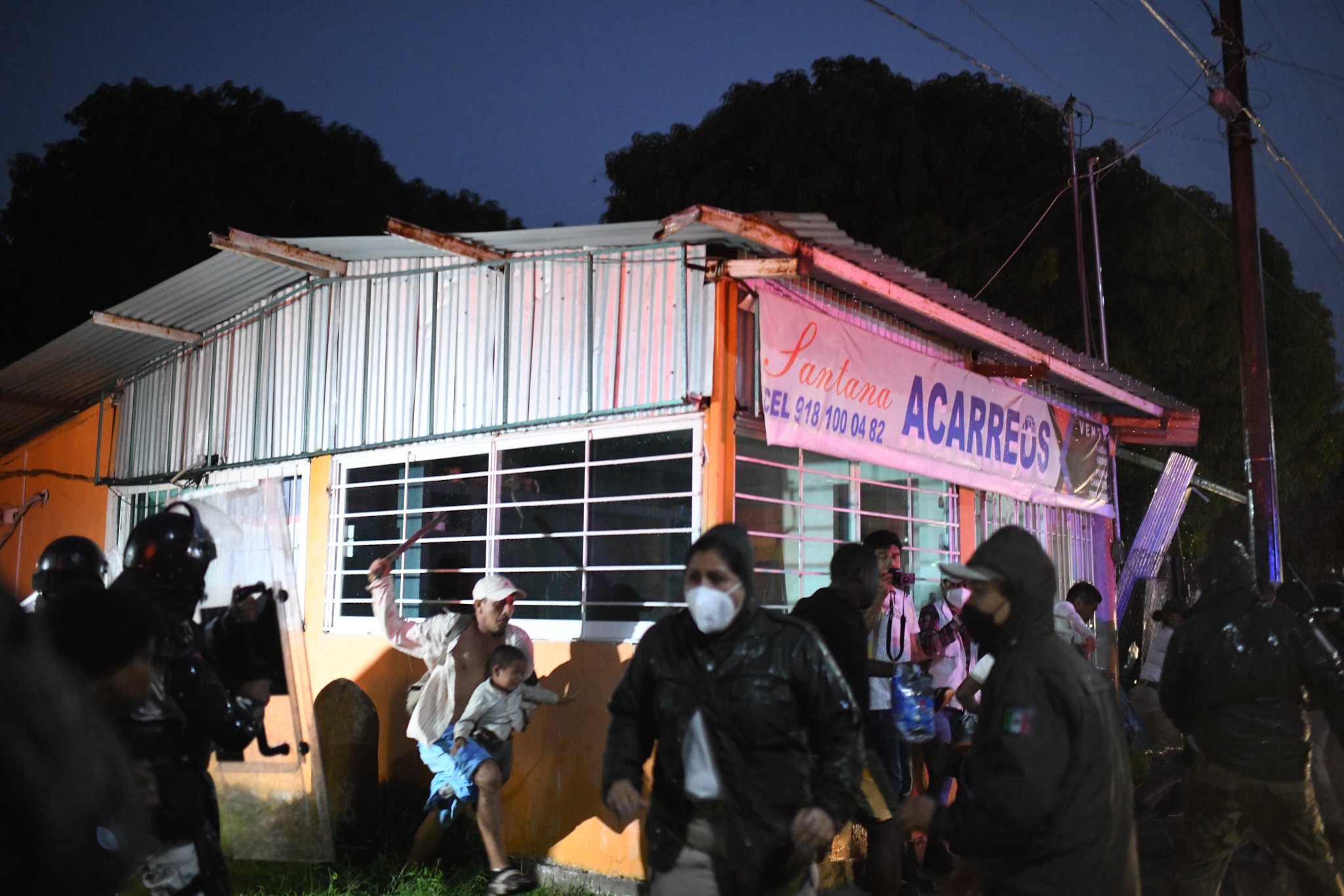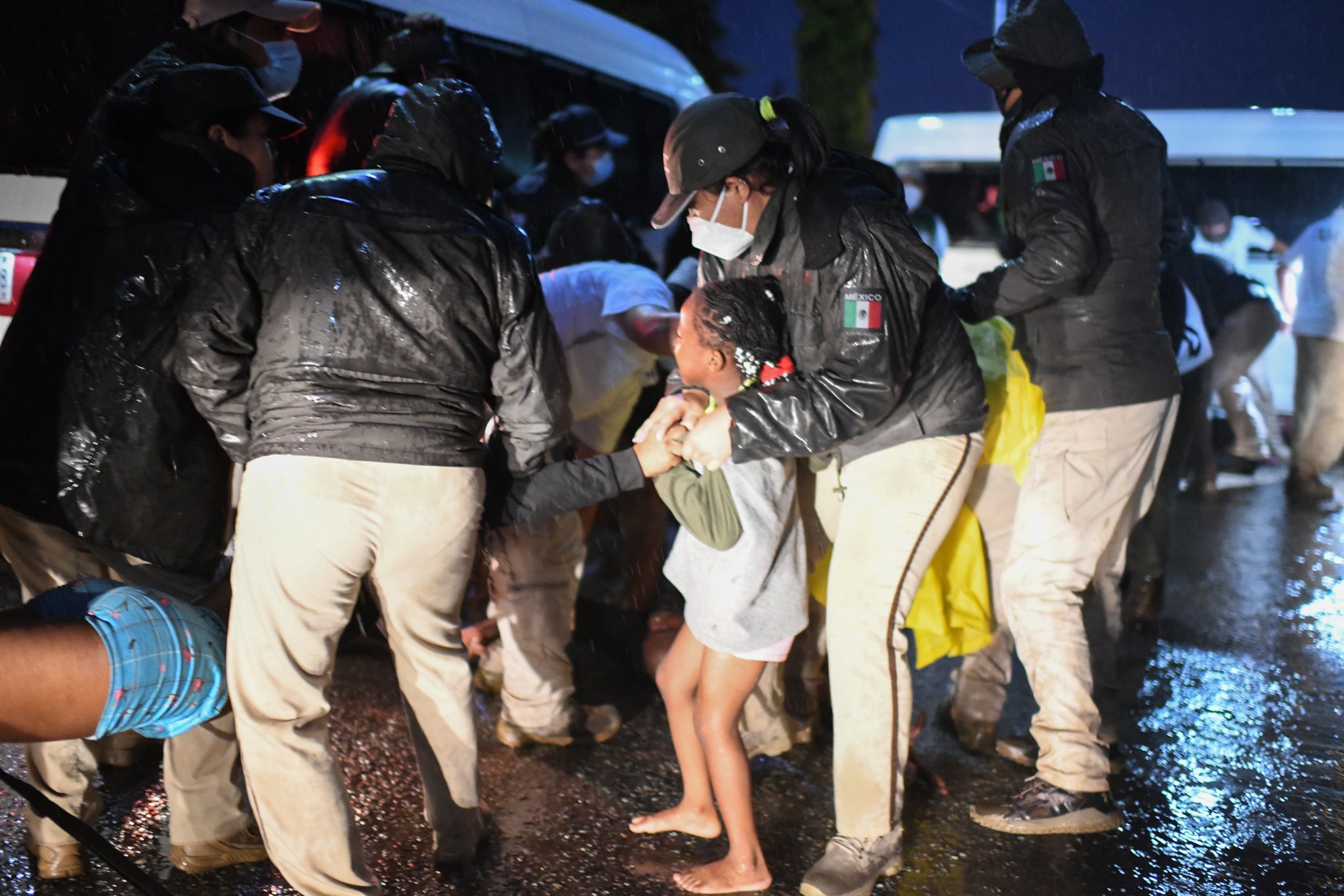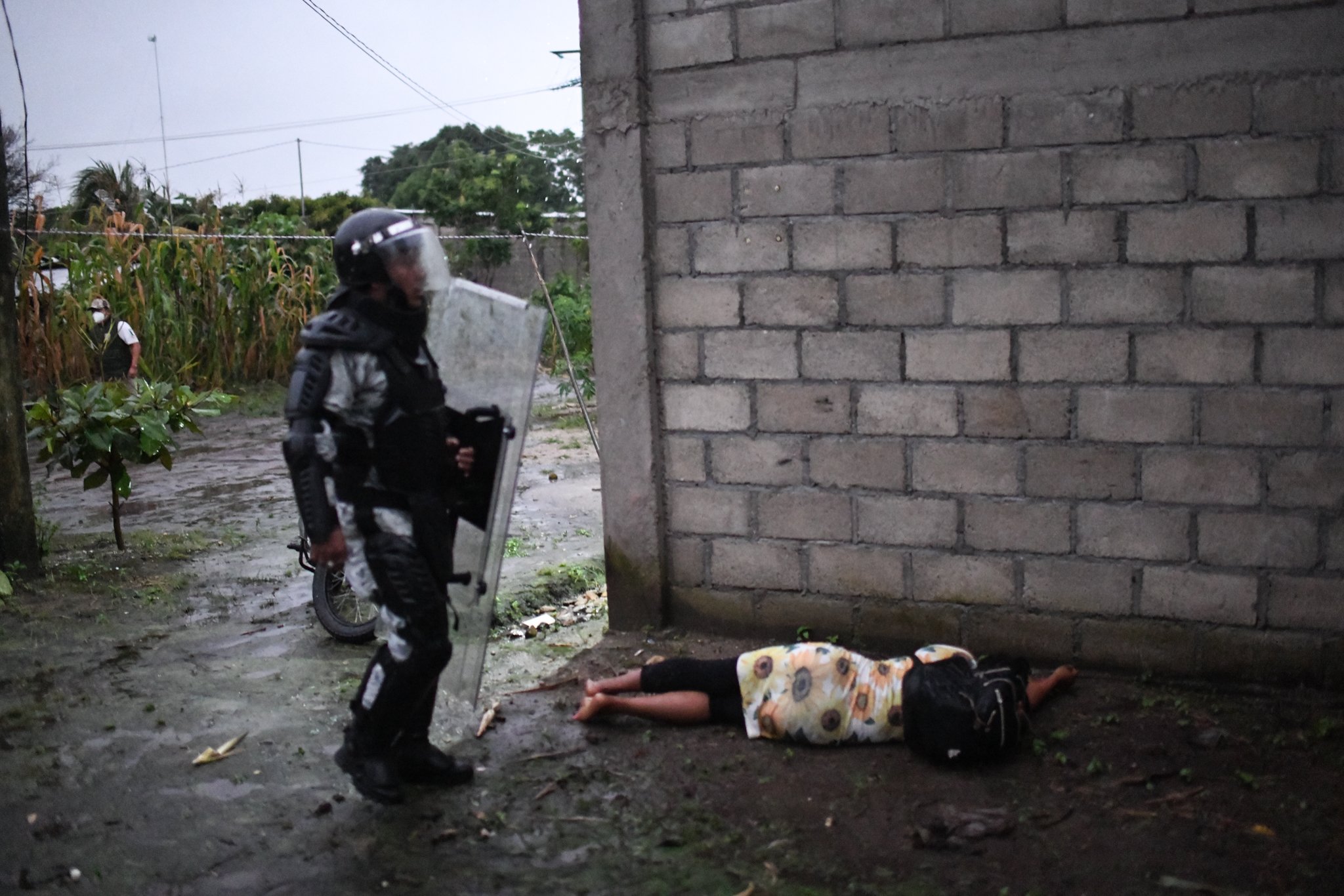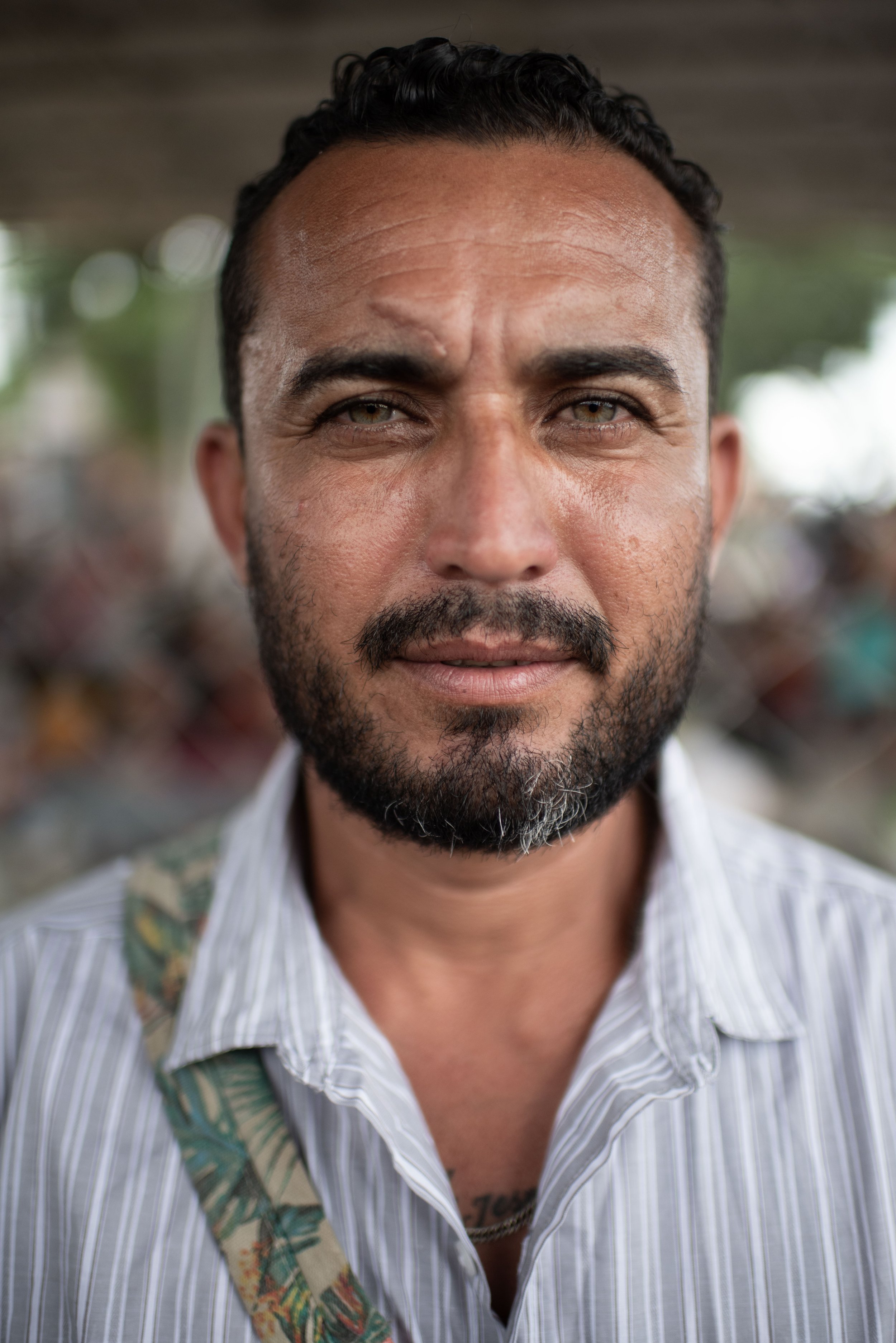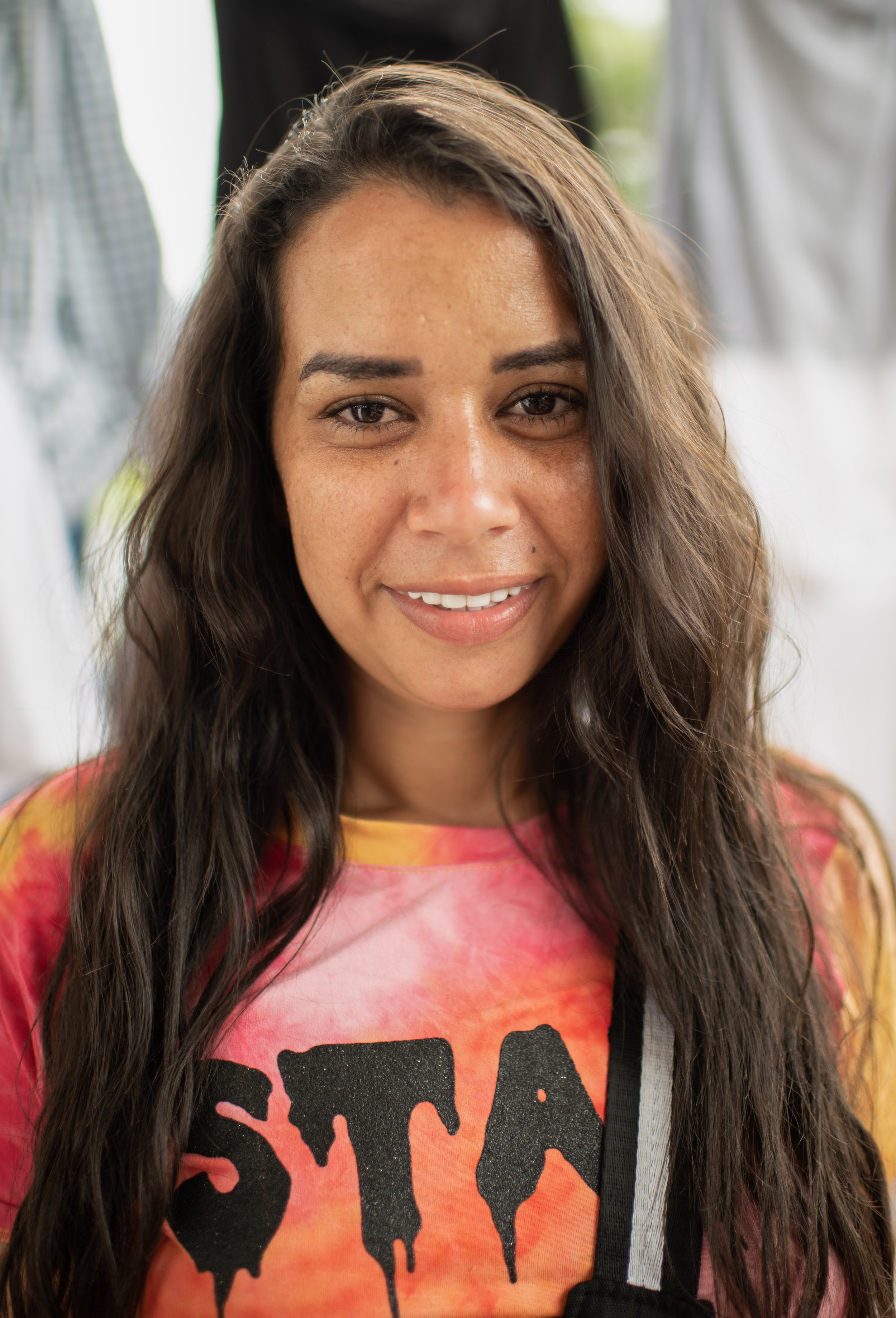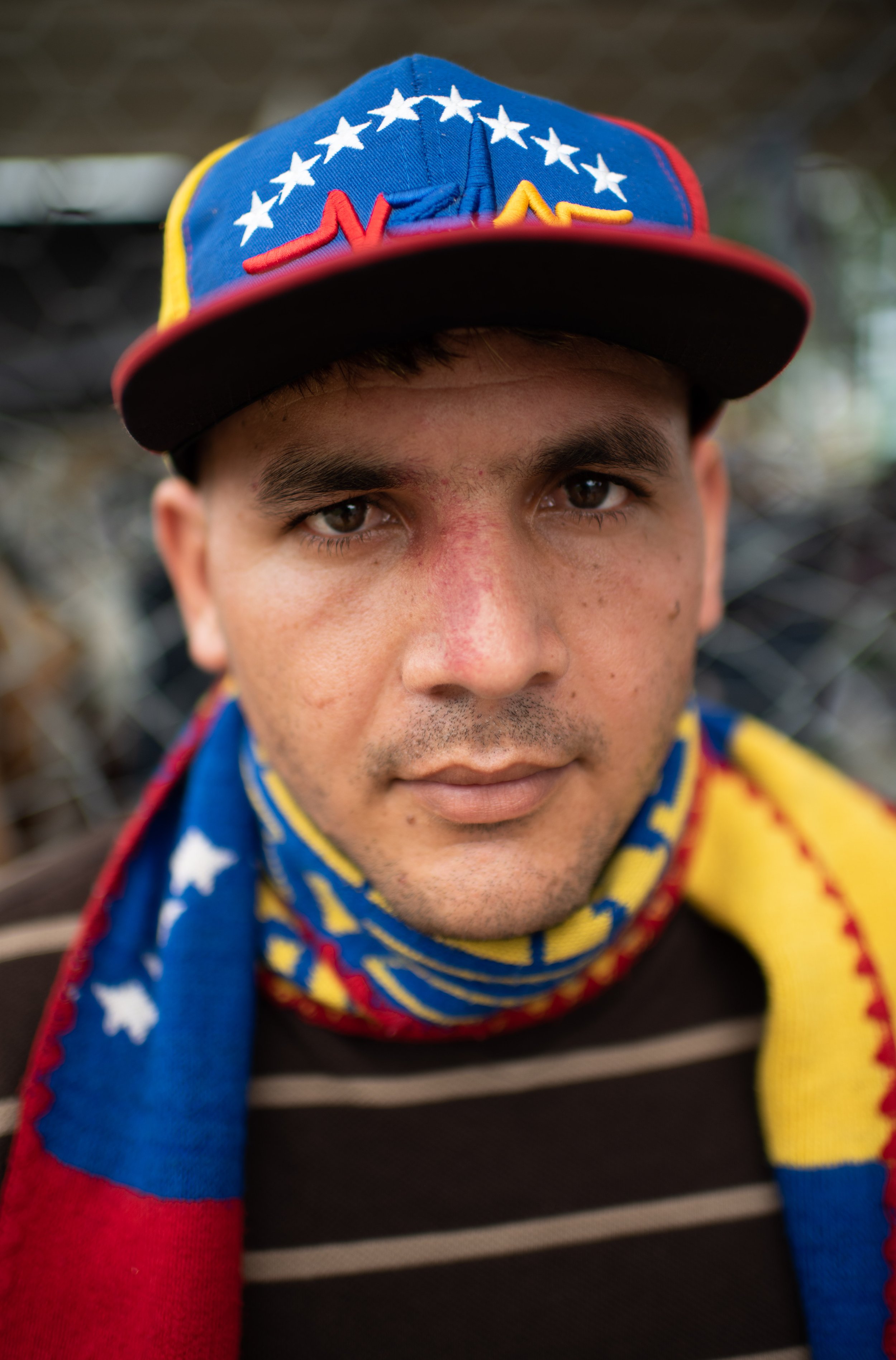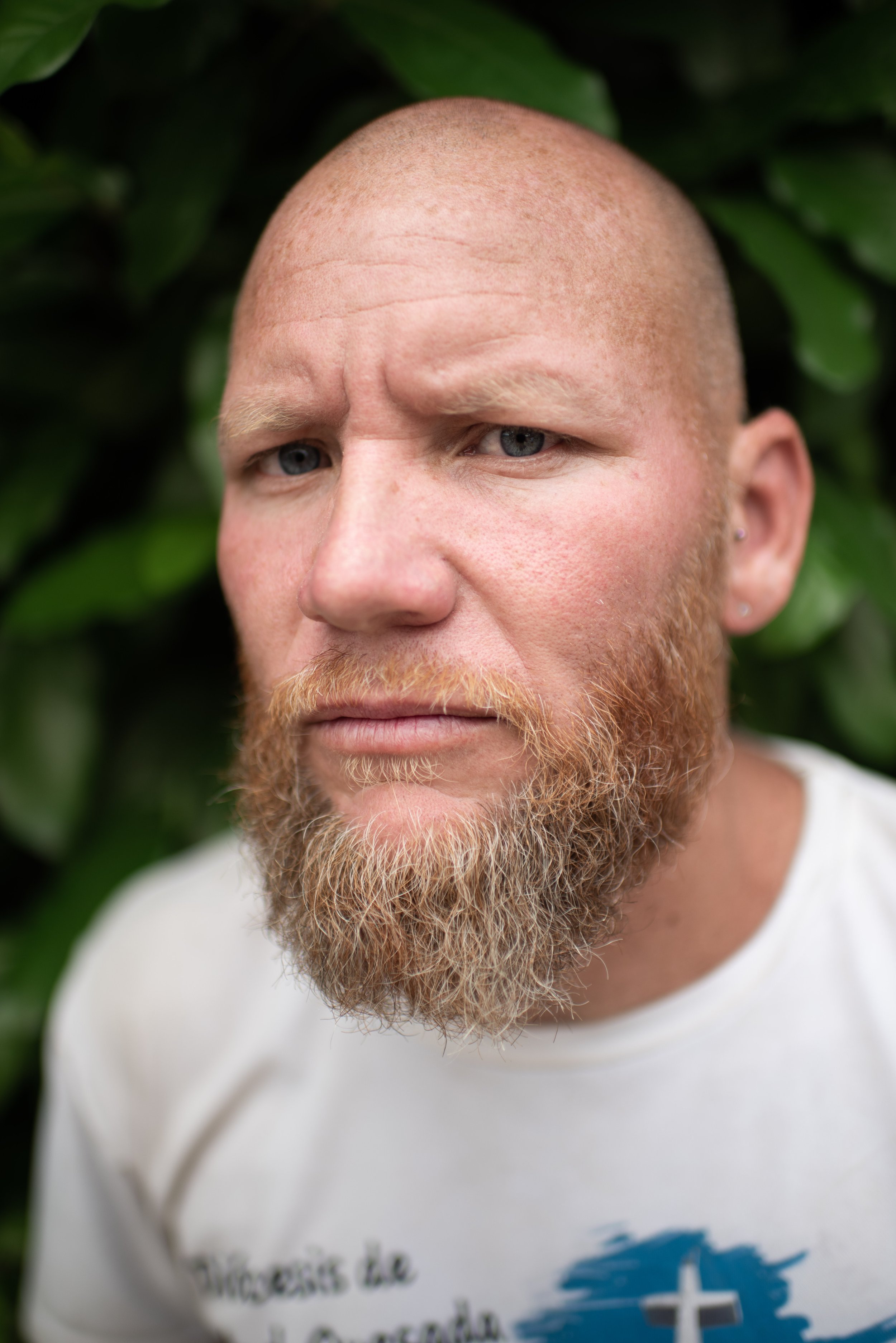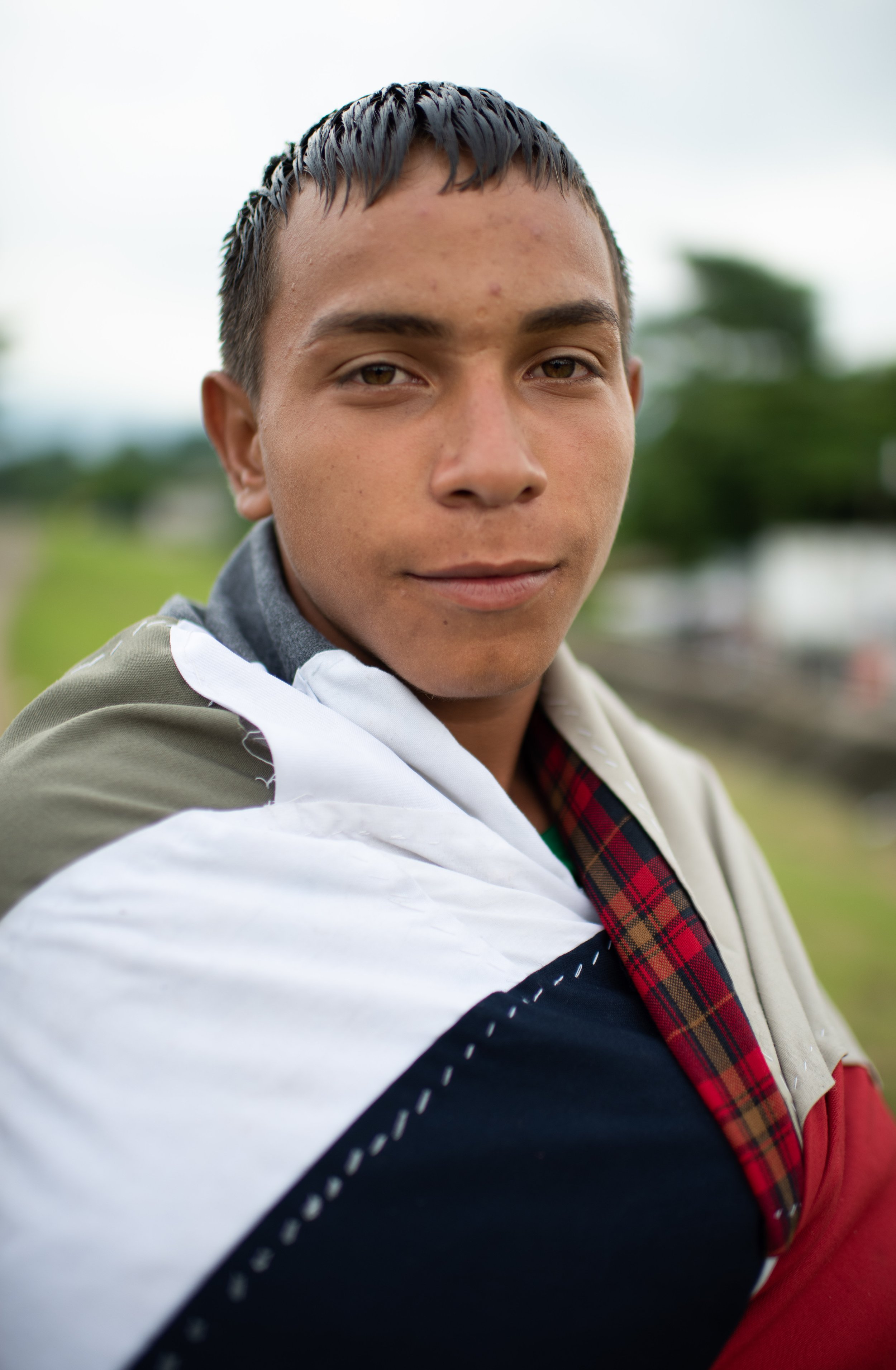“Somos el muro”
This project seeks to explore the influence of shifting migration and settlement patterns on the cultural and economic dynamics of border communities in the state of Chiapas, Mexico. Changes to US and Mexican immigration policy are having dramatic, visible effects on the lived experience of asylum seekers, refugees and economic migrants fleeing desperate conditions in their home countries as well as on receiving communities. Chiapas has a layered history of oppression, classism, independence and revolution as indigenous groups, “ladinos”, tourists, migrants and refugees, have lived and clashed over rights, entitlements, freedom, land and fair representation over generations. The unprecedented level of arrival of migrant caravans is exacerbating an already tenuous situation, as all groups navigate a cultural ecosystem that is unfamiliar to some, and all too familiar to others.
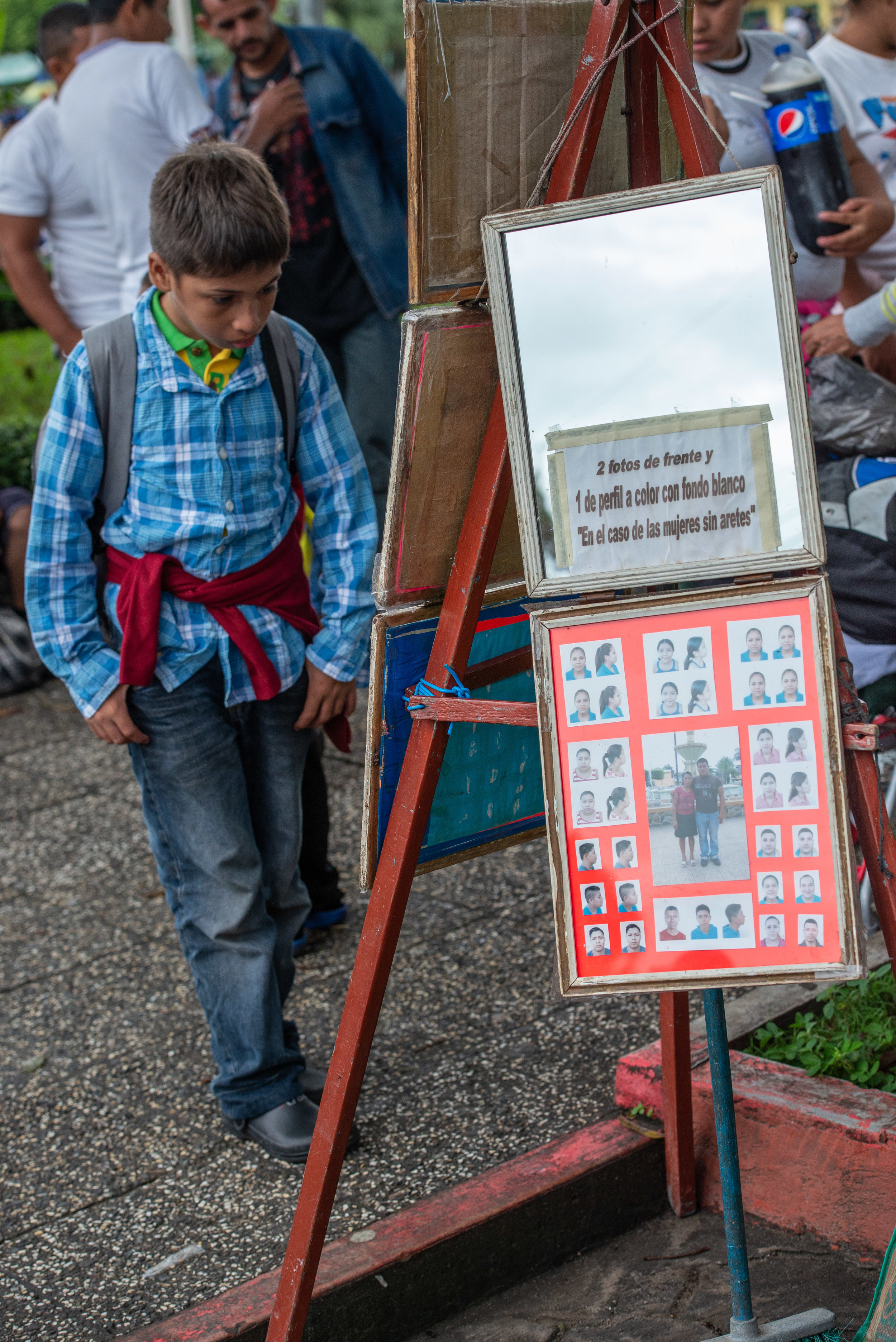
El uso oficial de la imagen. | Photographs for official use.
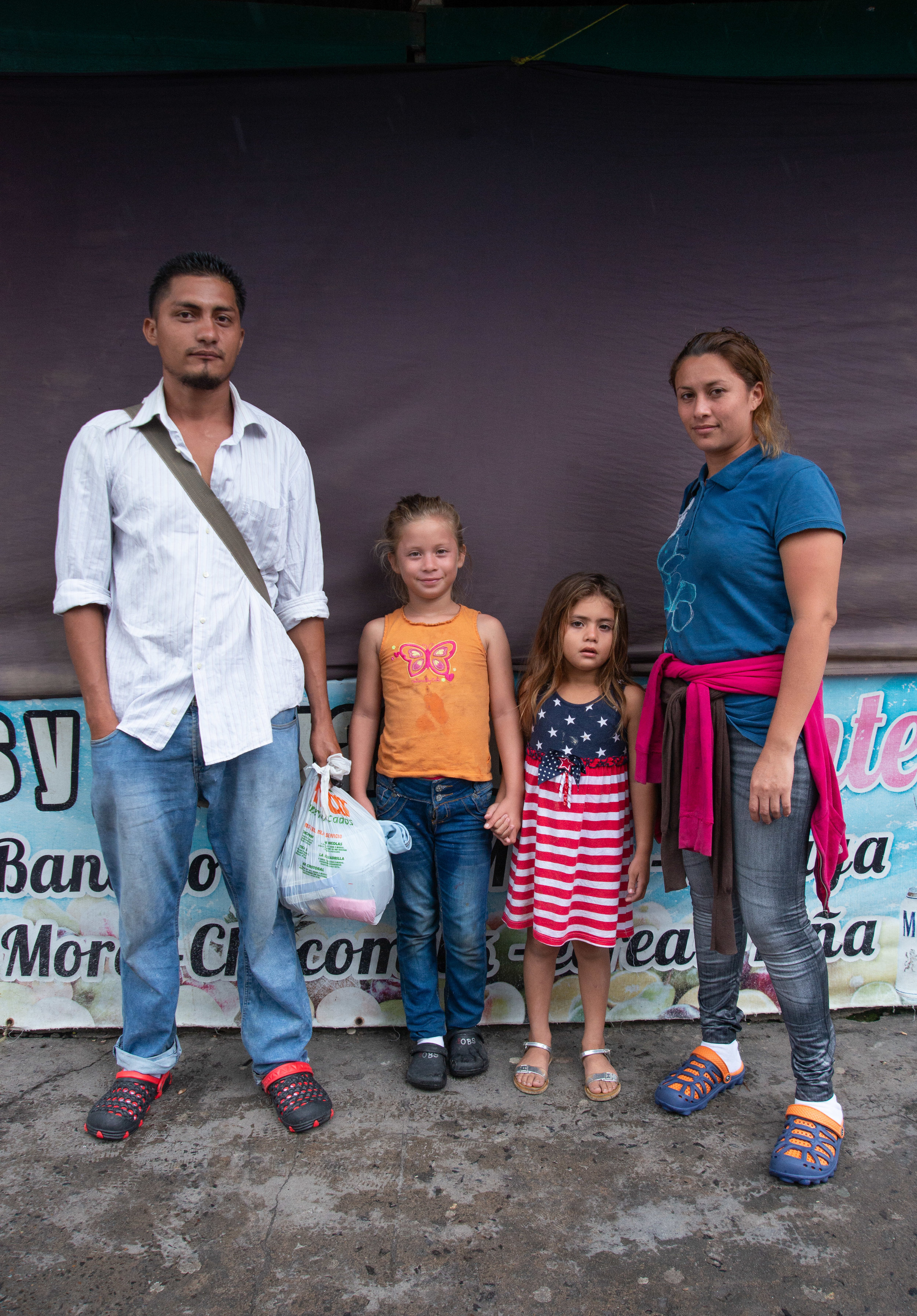
Los Estados Unidos en la esperanza de una familia de El Salvador. | The United States, the hope for a family from El Salvador.
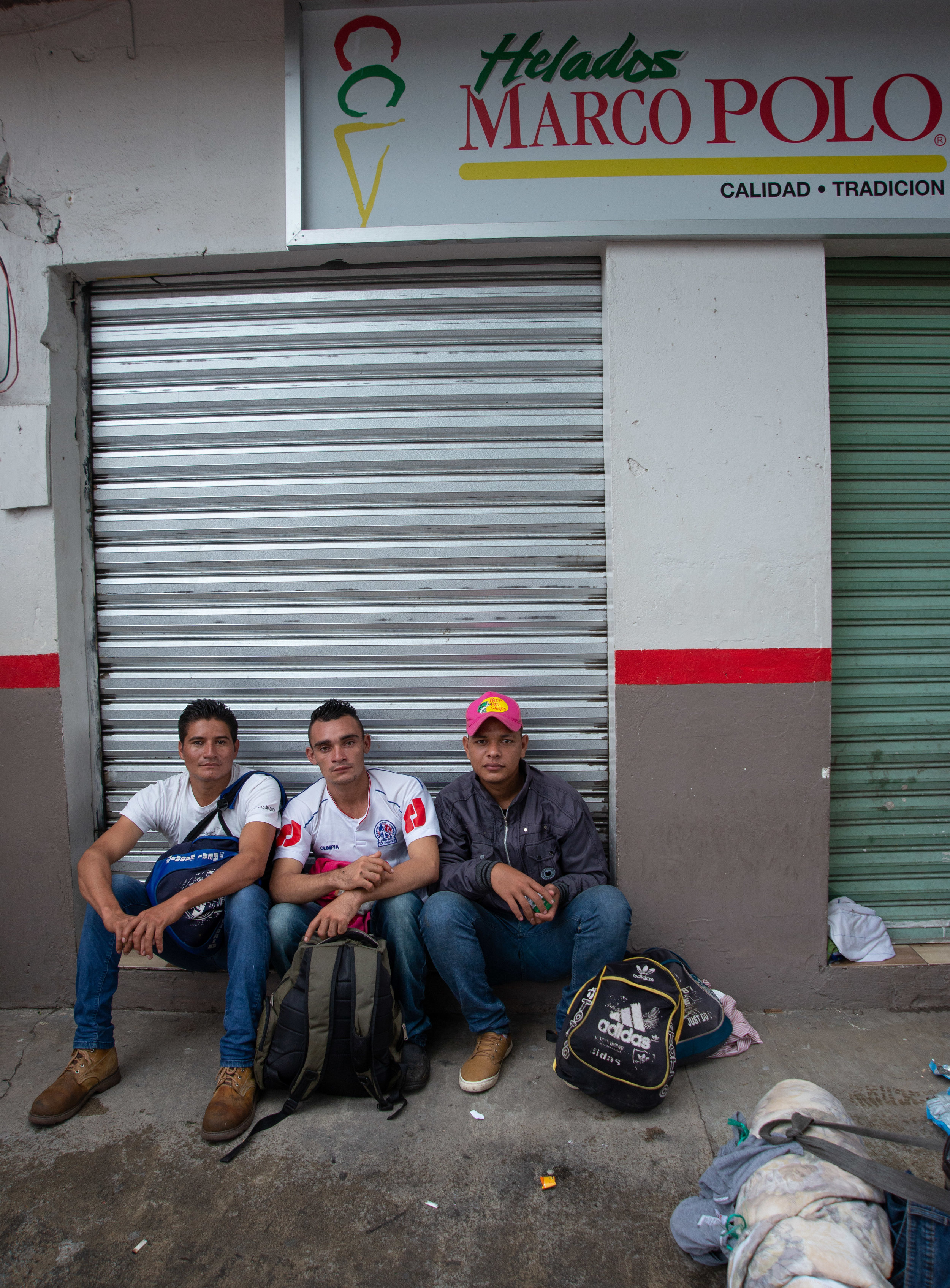
Desplazamiento a través del tiempo. | Displacement across time.
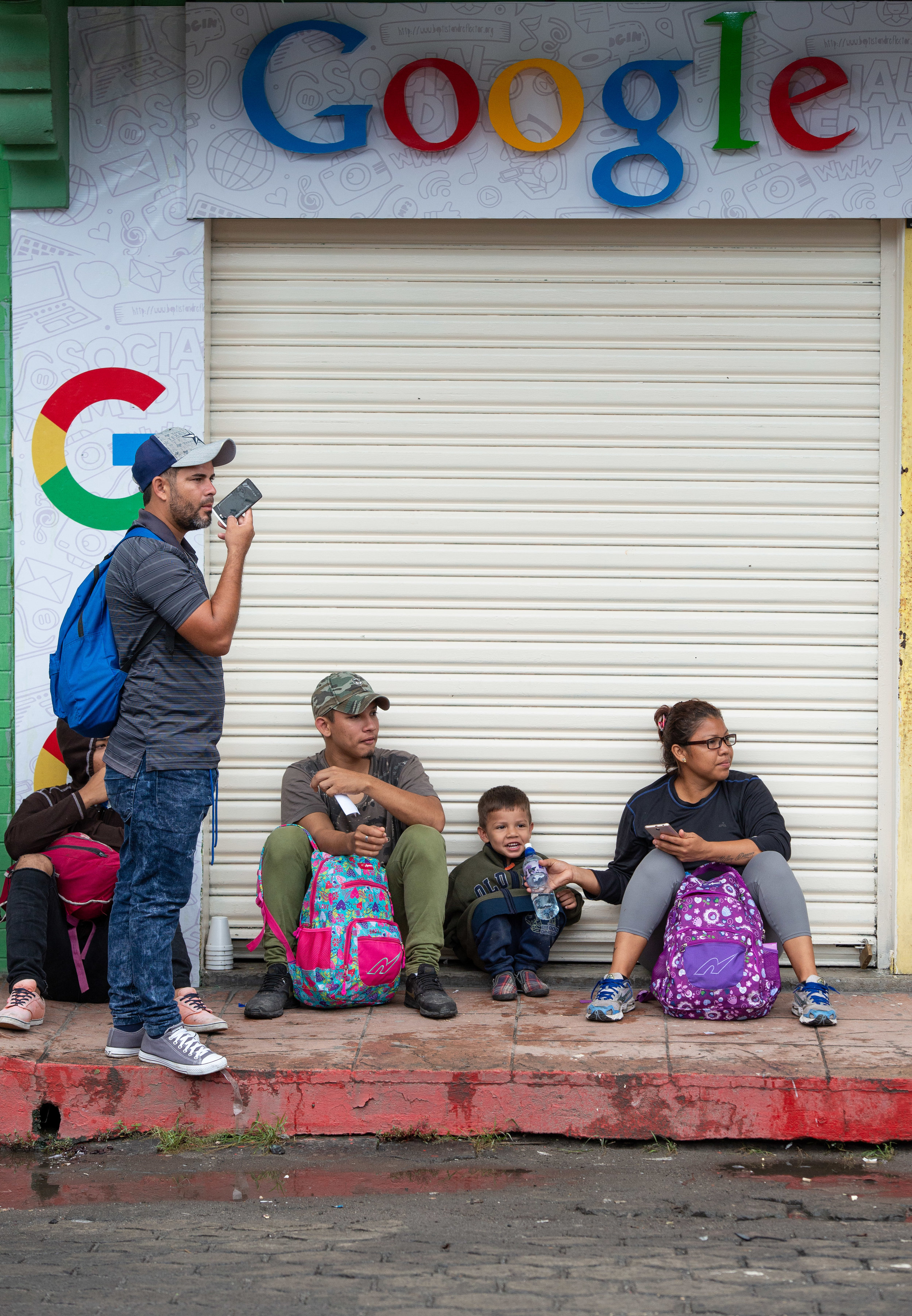
Buscando un lugar | Finding a place.
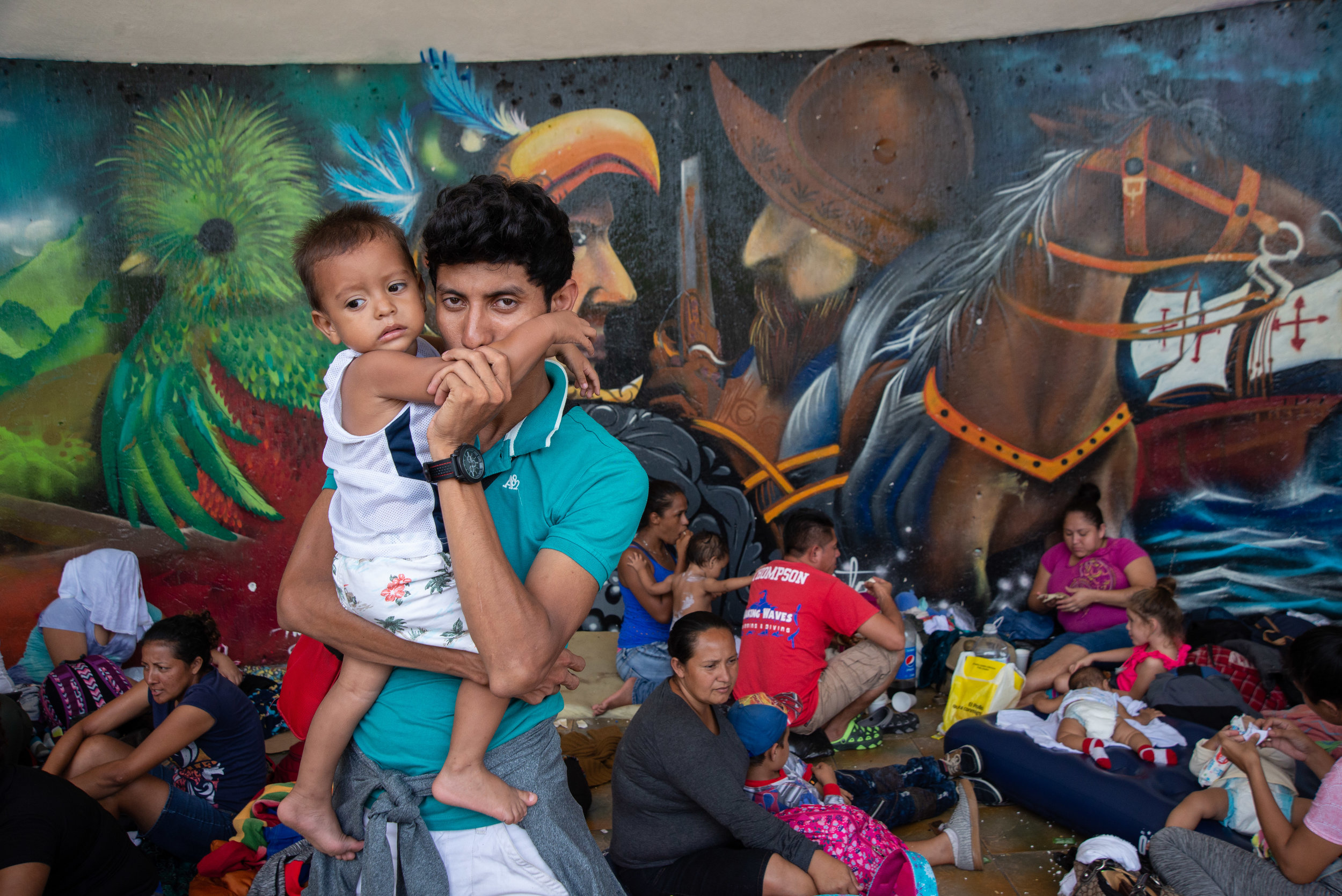
Desplazamiento a través del tiempo: Tecún Umán, Pedro de Alvarado (Siglo XVI) y la caravana Migrante | Displacement across time: Tecún Umán, Pedro de Alvarado (16th Century) y la caravana Migrante.
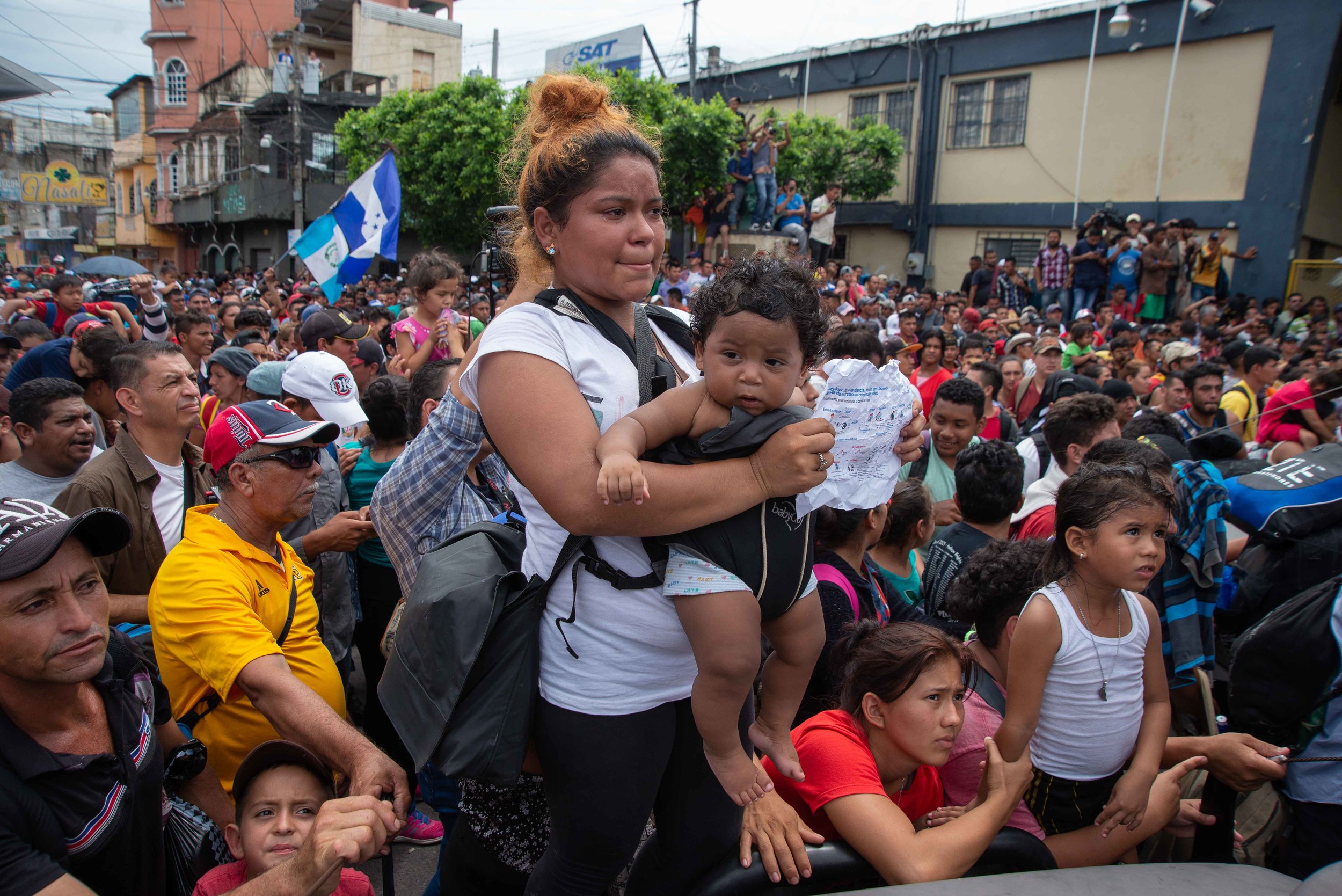
Esperando entrar a México. | Waiting to get in to Mexico.
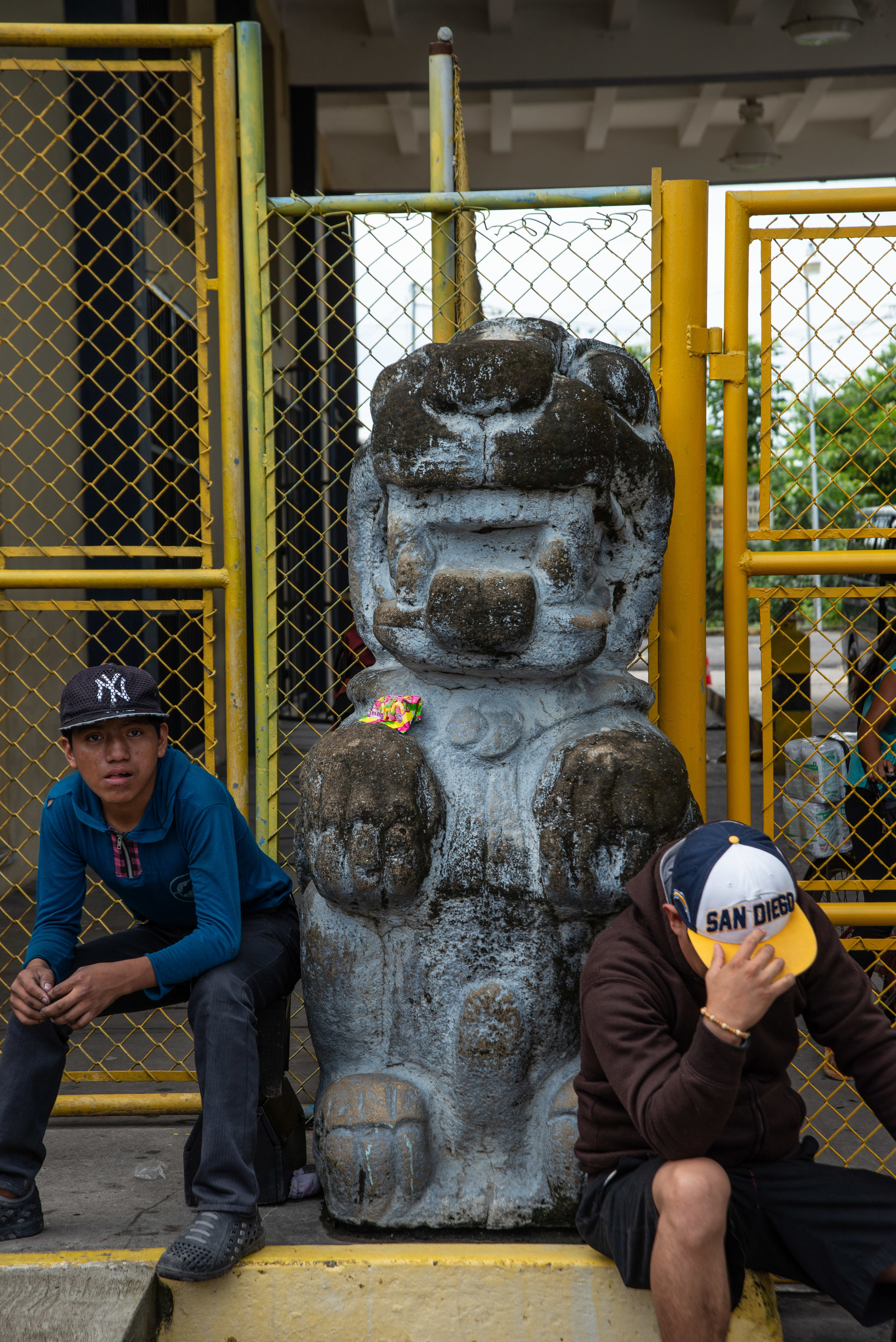
Jaguar de la frontera. | Jaguar from the border.
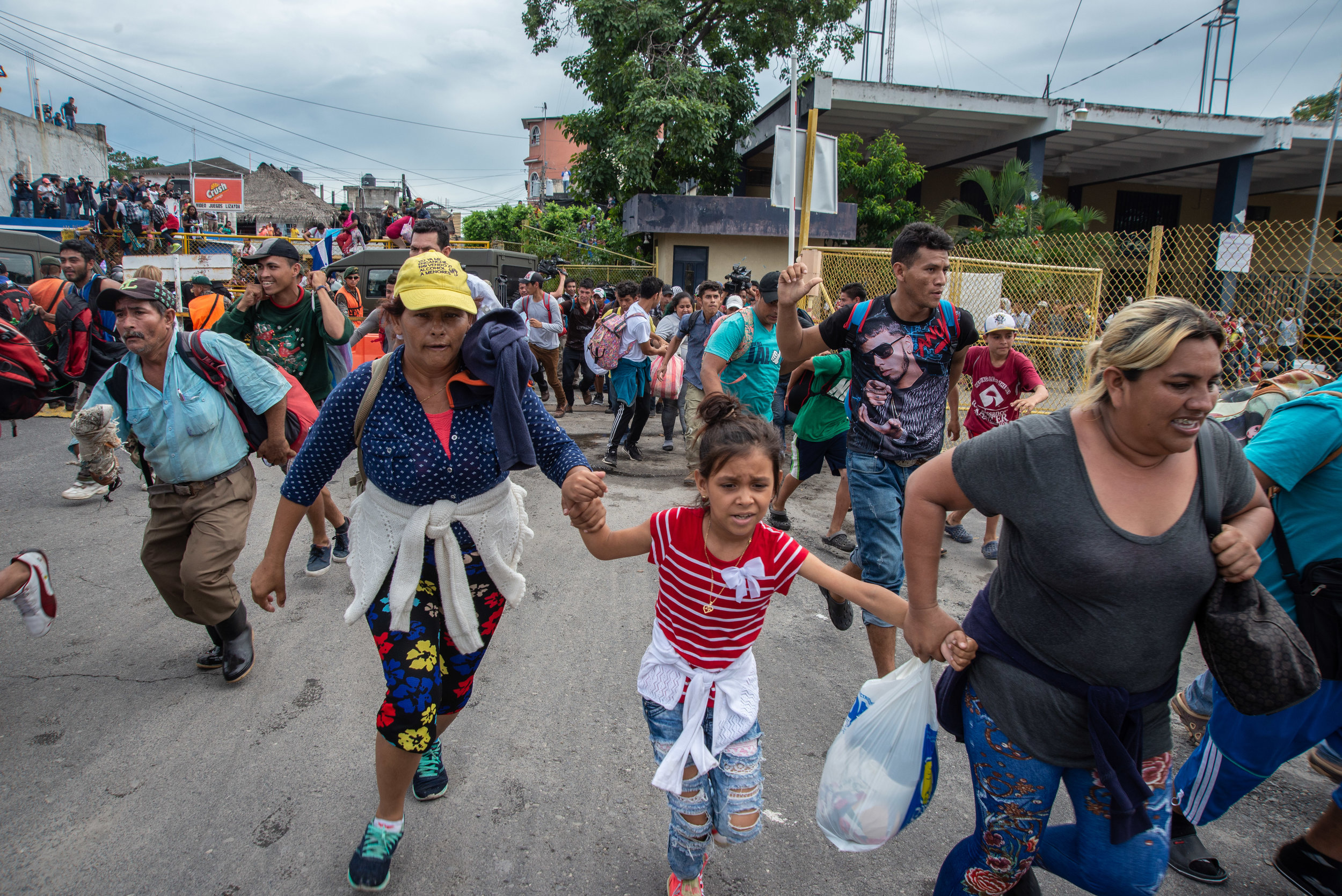
Rompiendo la Frontera. | Breaking through the border.
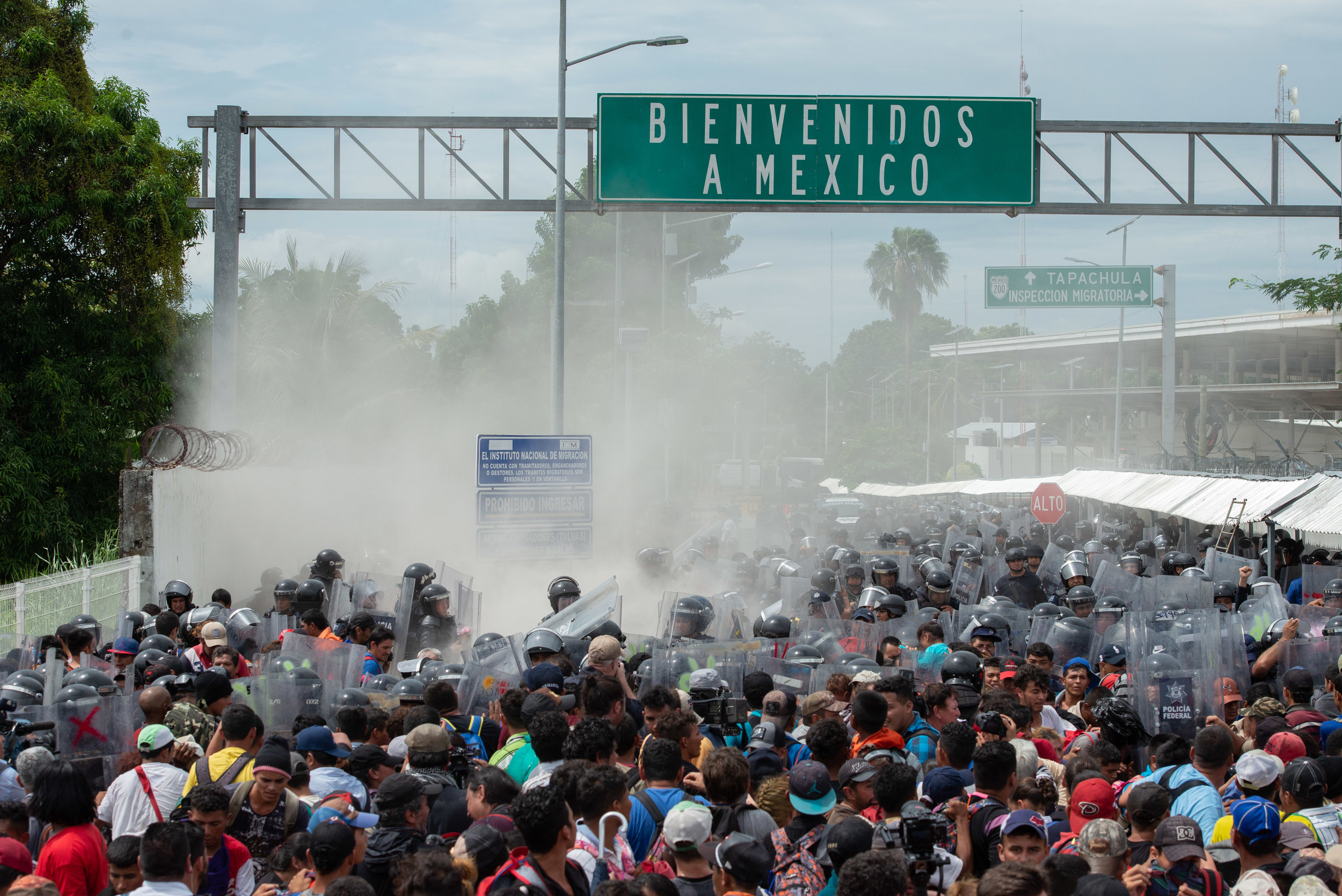
Bienvenidos a Mexico. | Welcome to Mexico.
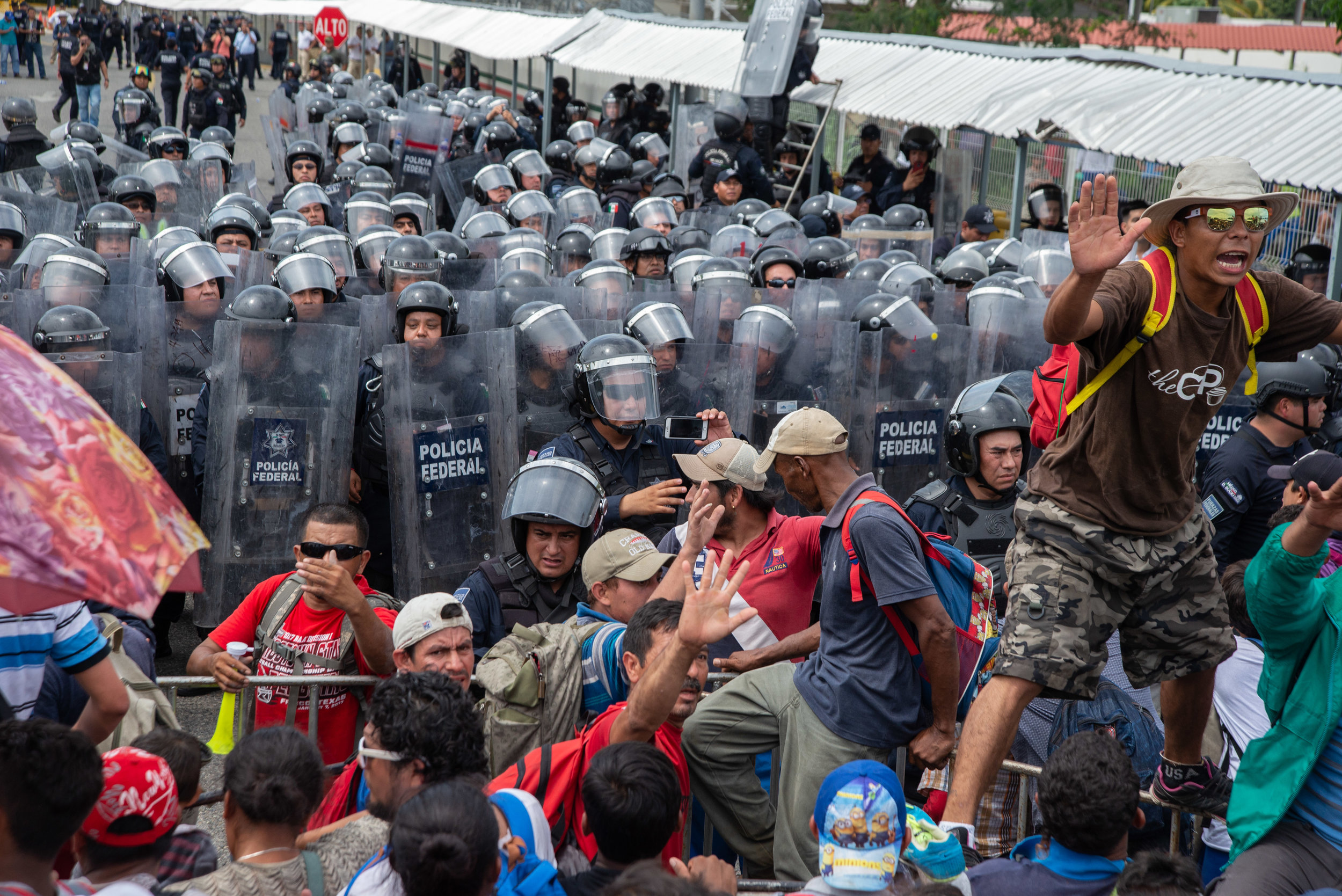
La recepción de la caravana migrante. | The reception of the migrant caravan by Mexican authorities.
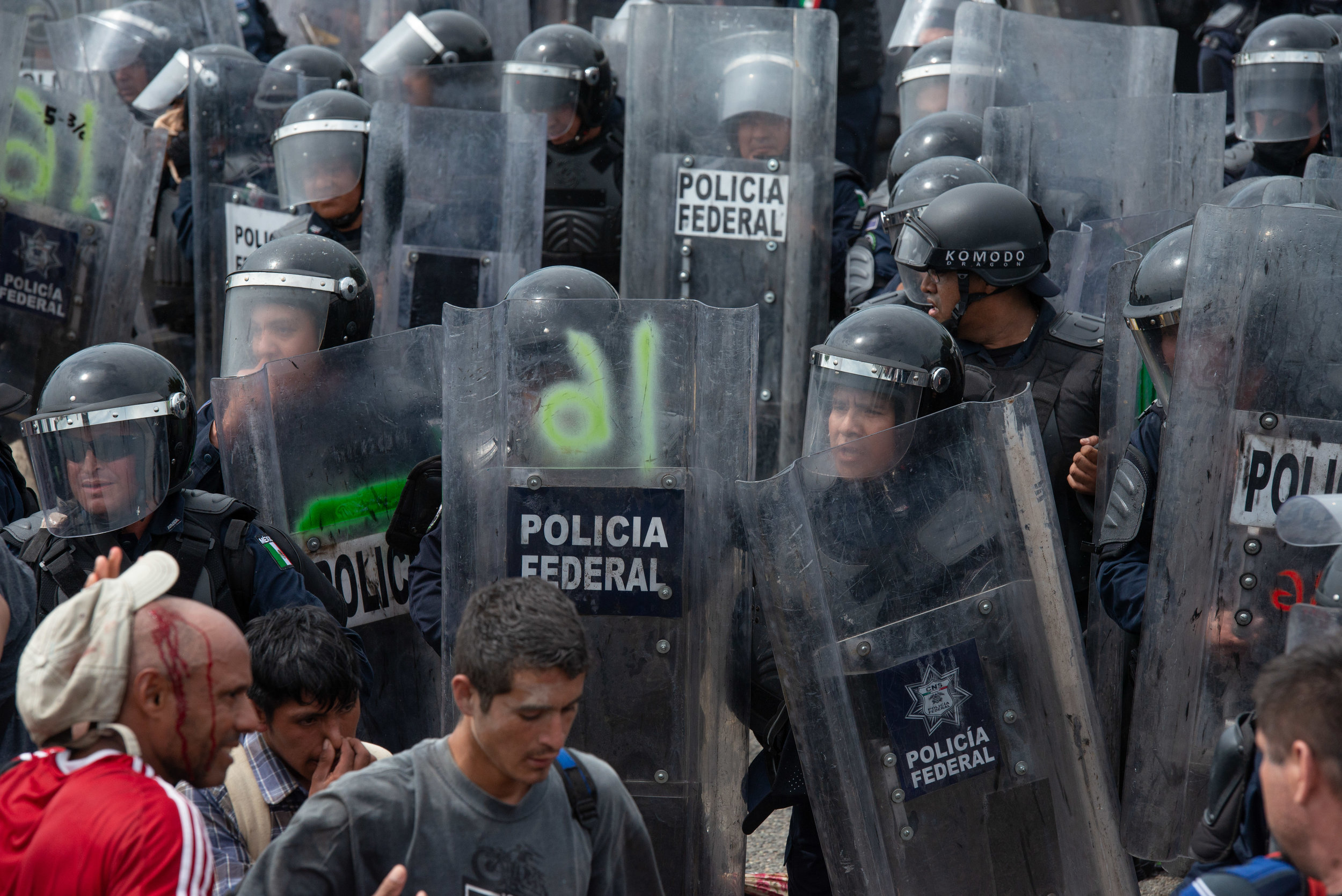
Bienvenido a Mexico. | Welcome to Mexico.
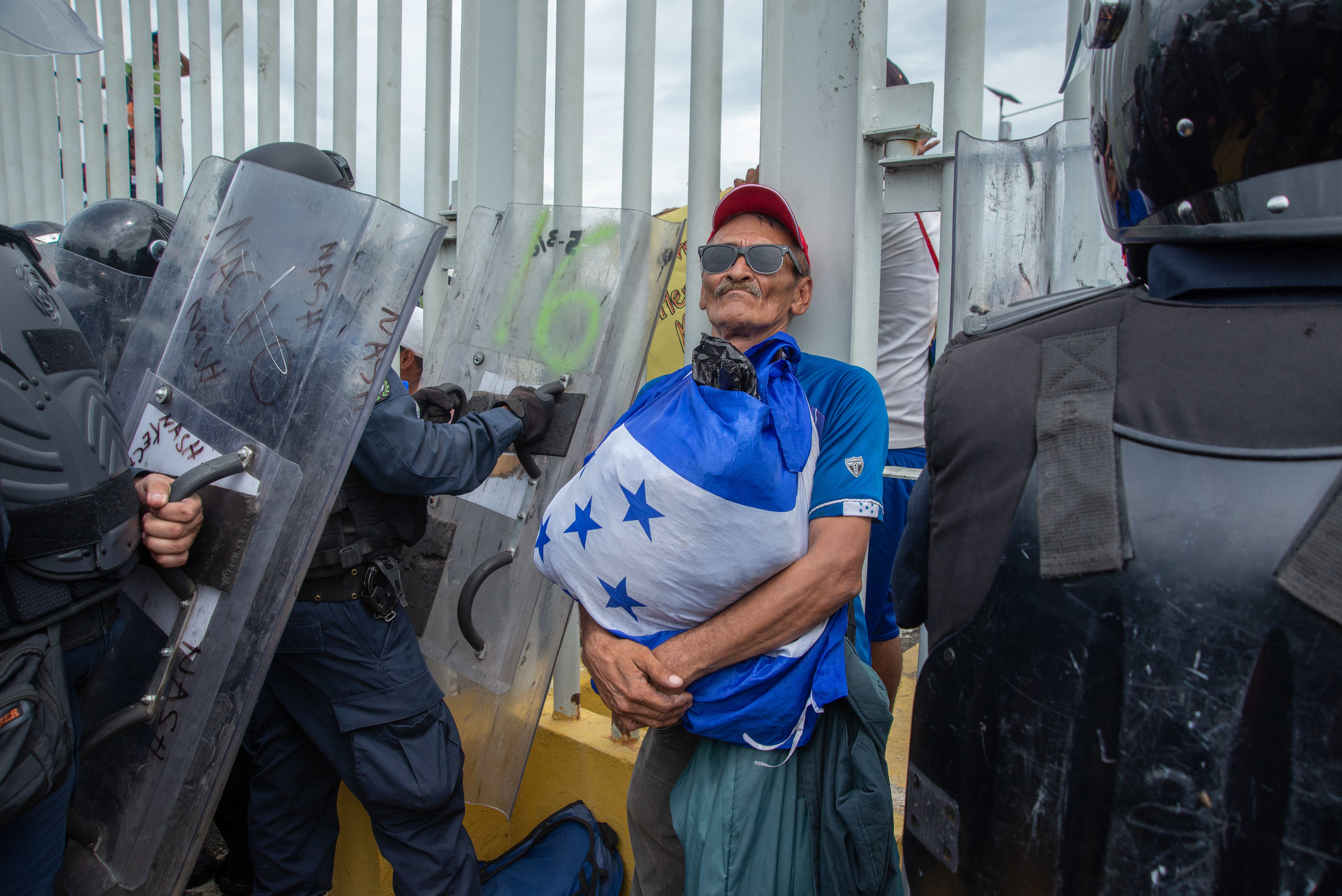
Nadie es Apátrida. | Nobody is without Nationality.
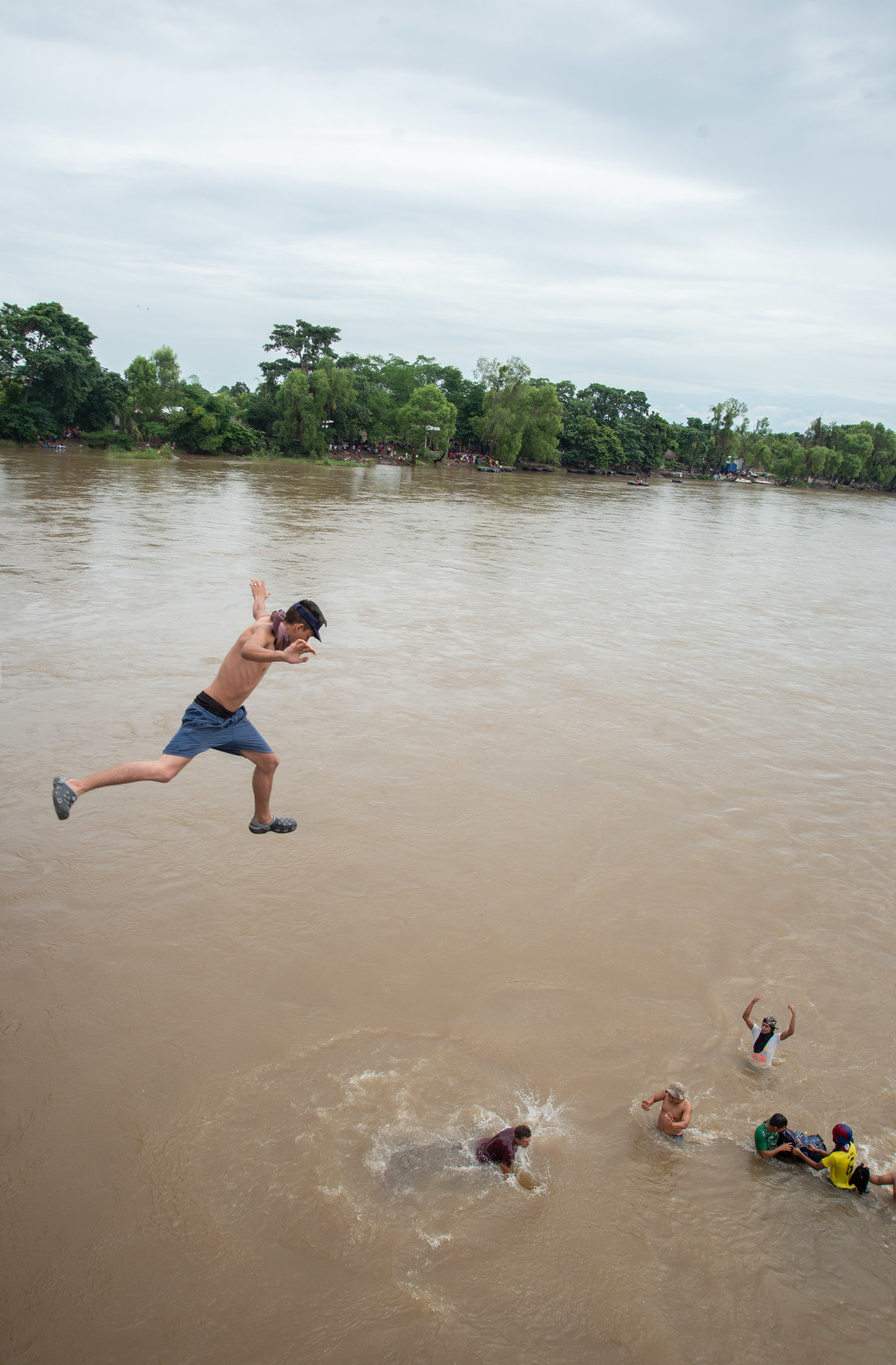
Aguas internacionales, Guatemala - Mexico. | International waters, Guatemala - Mexico.
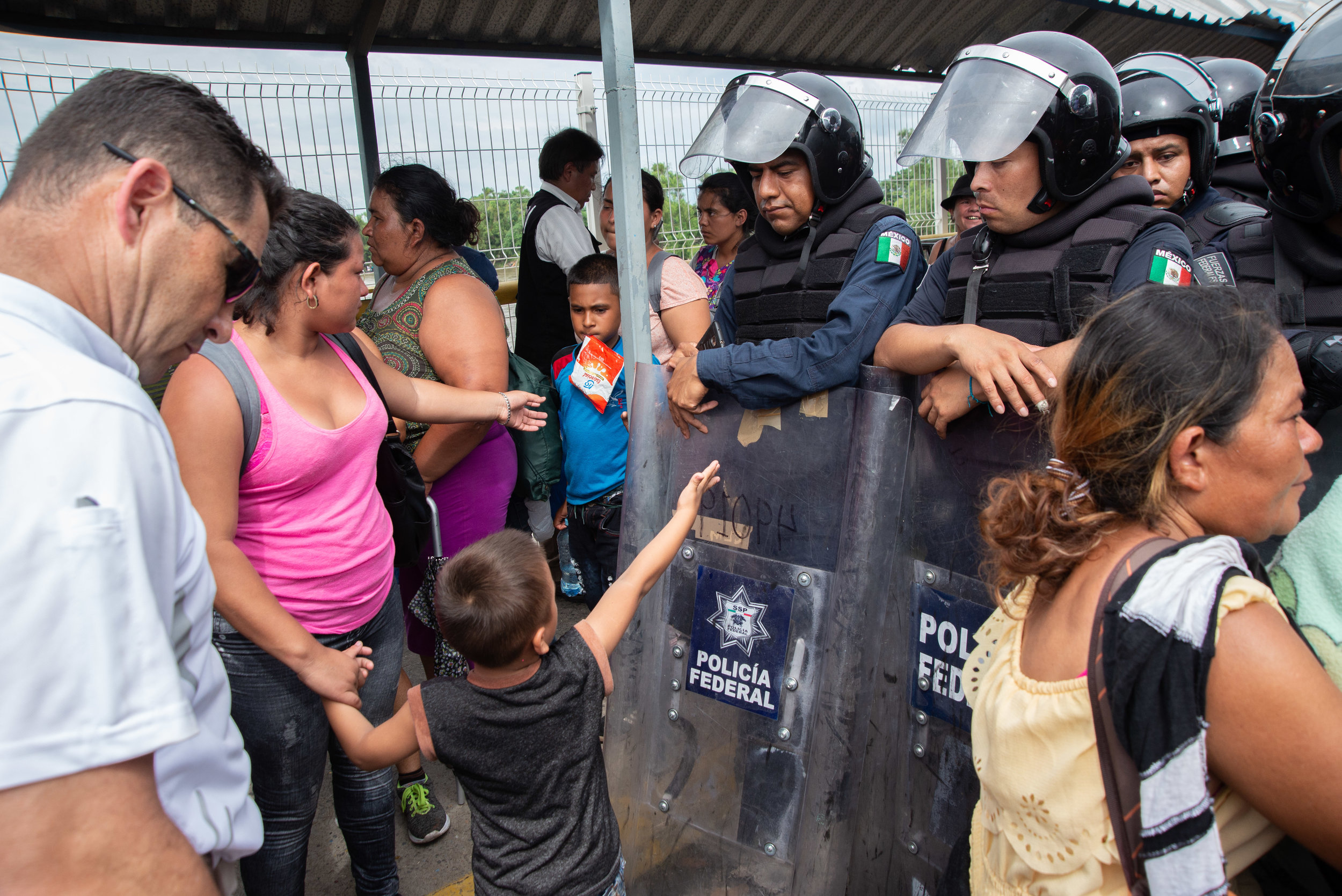
Los primeros migrantes de la caravana detenidos. | The first detained migrants part of the caravan.
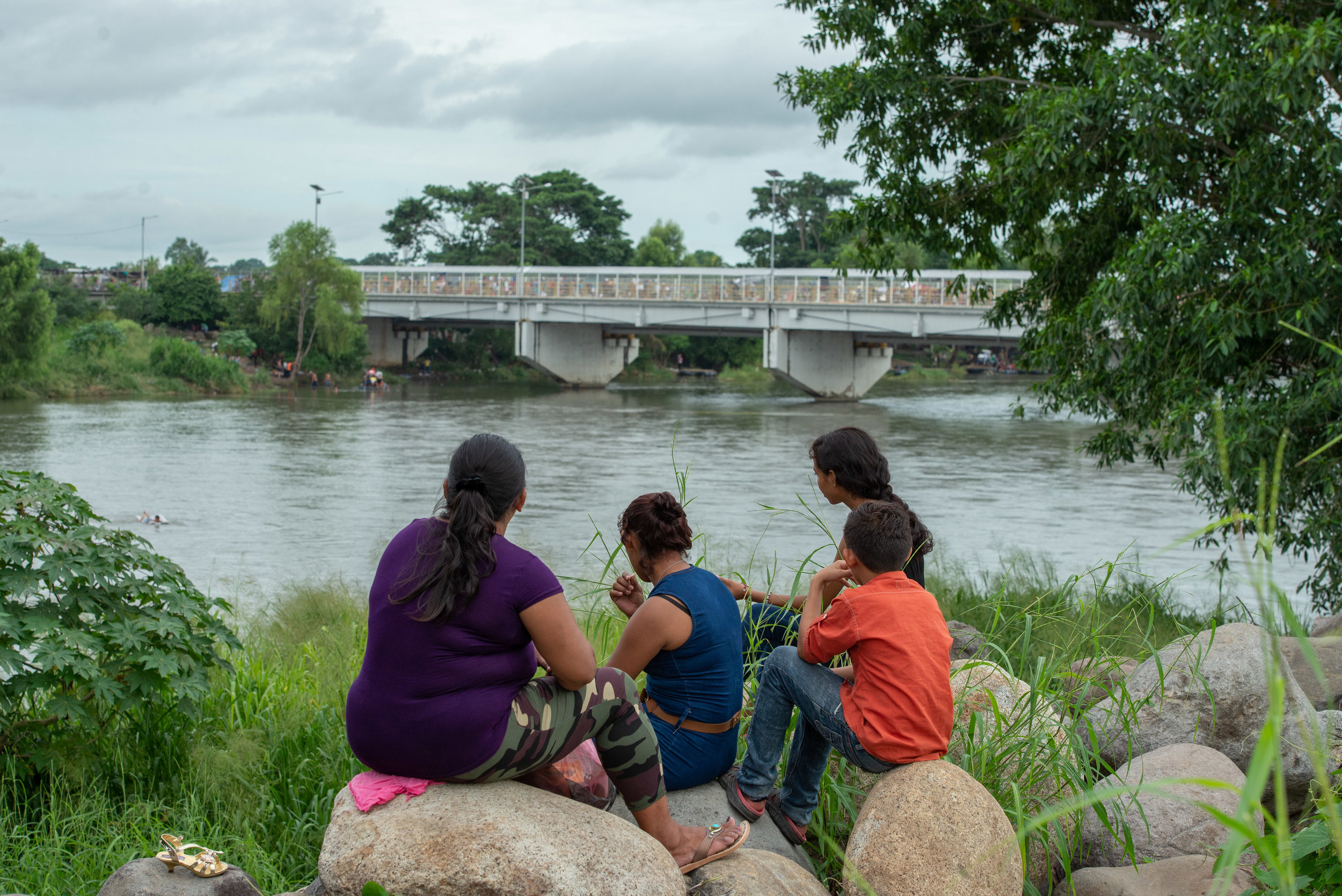
Desde el lado Mexicano. | From the Mexican side.
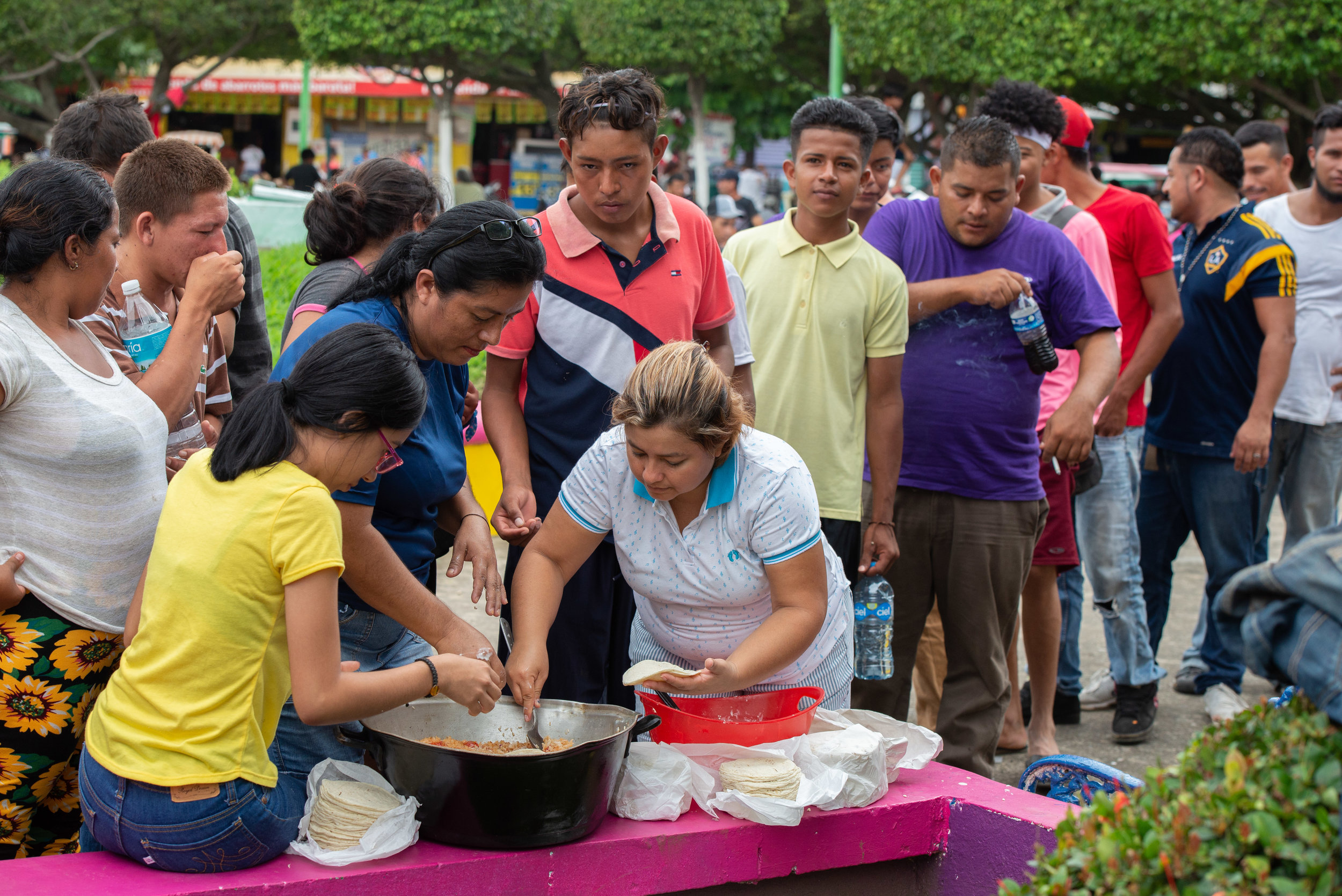
Mexicanos de Ciudad Hidalgo, compartiendo la comida. | Mexicans in the City of Hidalgo, sharing their food.
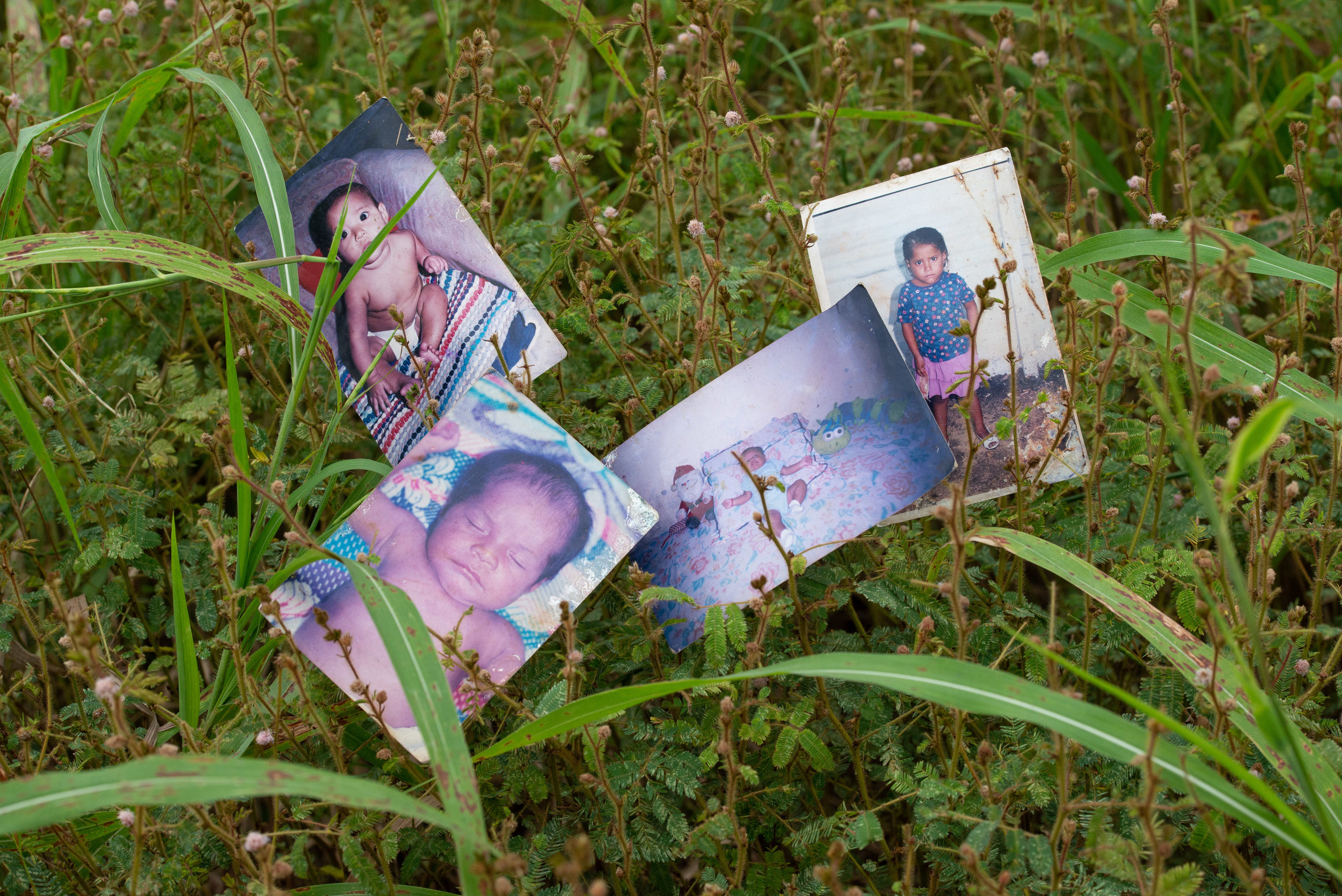
Memorias olvidados | Forgotten memories.
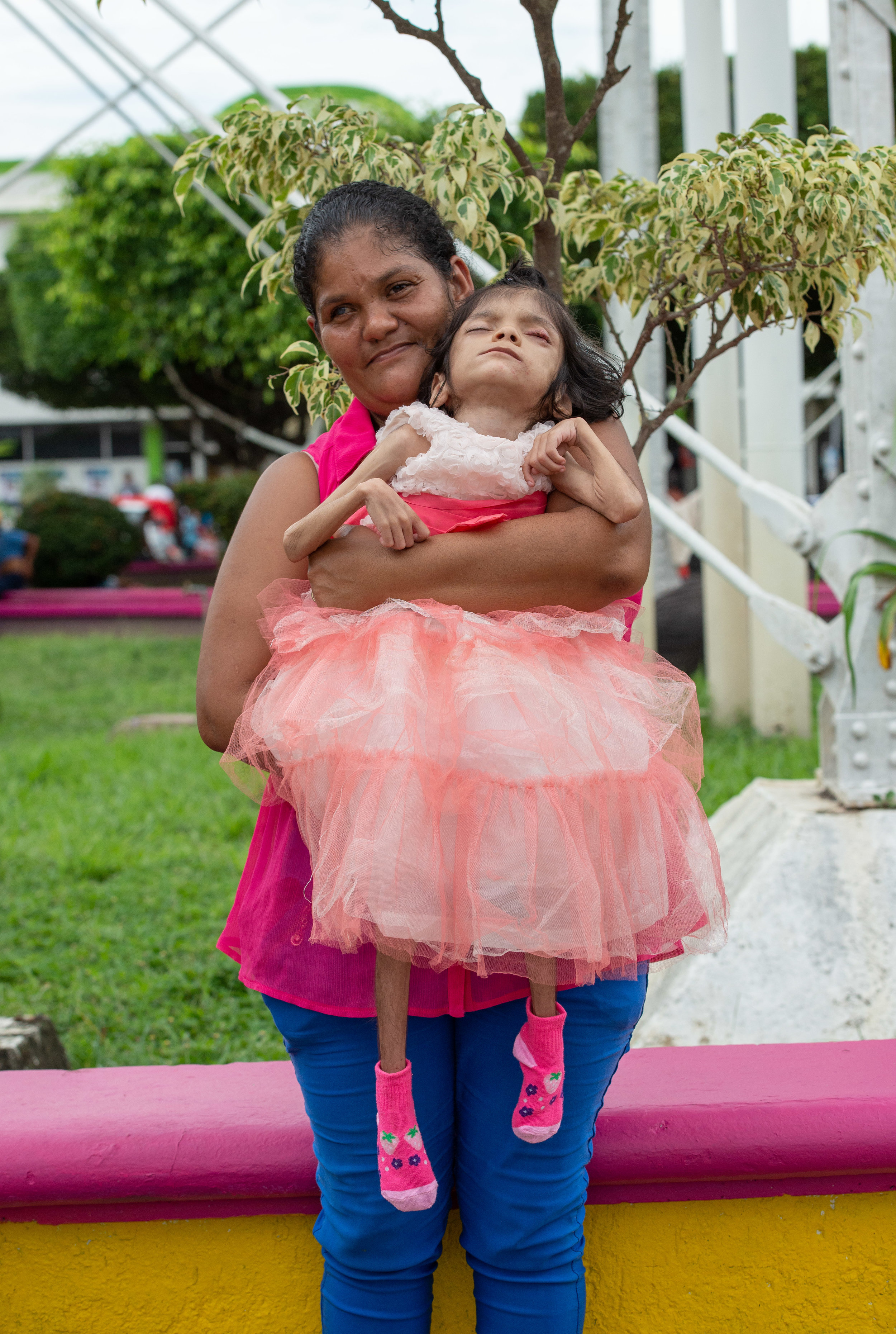
Mujer Hondureña que espera llegar a los Estados Unidos para recibir atención medica para su hija. Ella escucho sobre la caravana migrante por la radio y decidió unirse. | A woman from Honduras hopes to get to the United States to receive medical attention for her daughter. She heard about the migrant caravan from the radio and decided to join it.
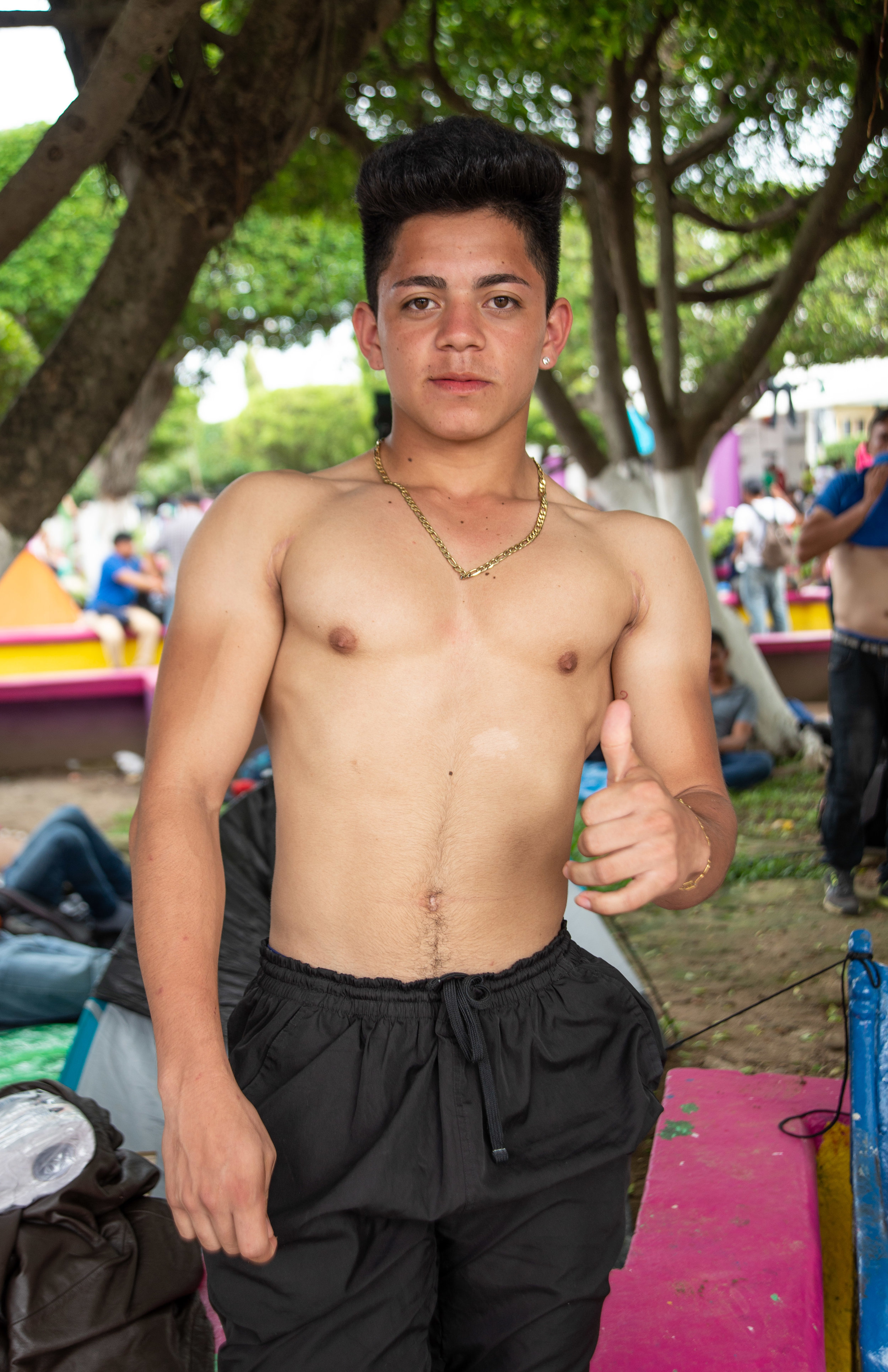
Miembro de la Caravana en Ciudad Hidalgo, México. | Member of the Caravan in the City of Hidalgo, Mexico.
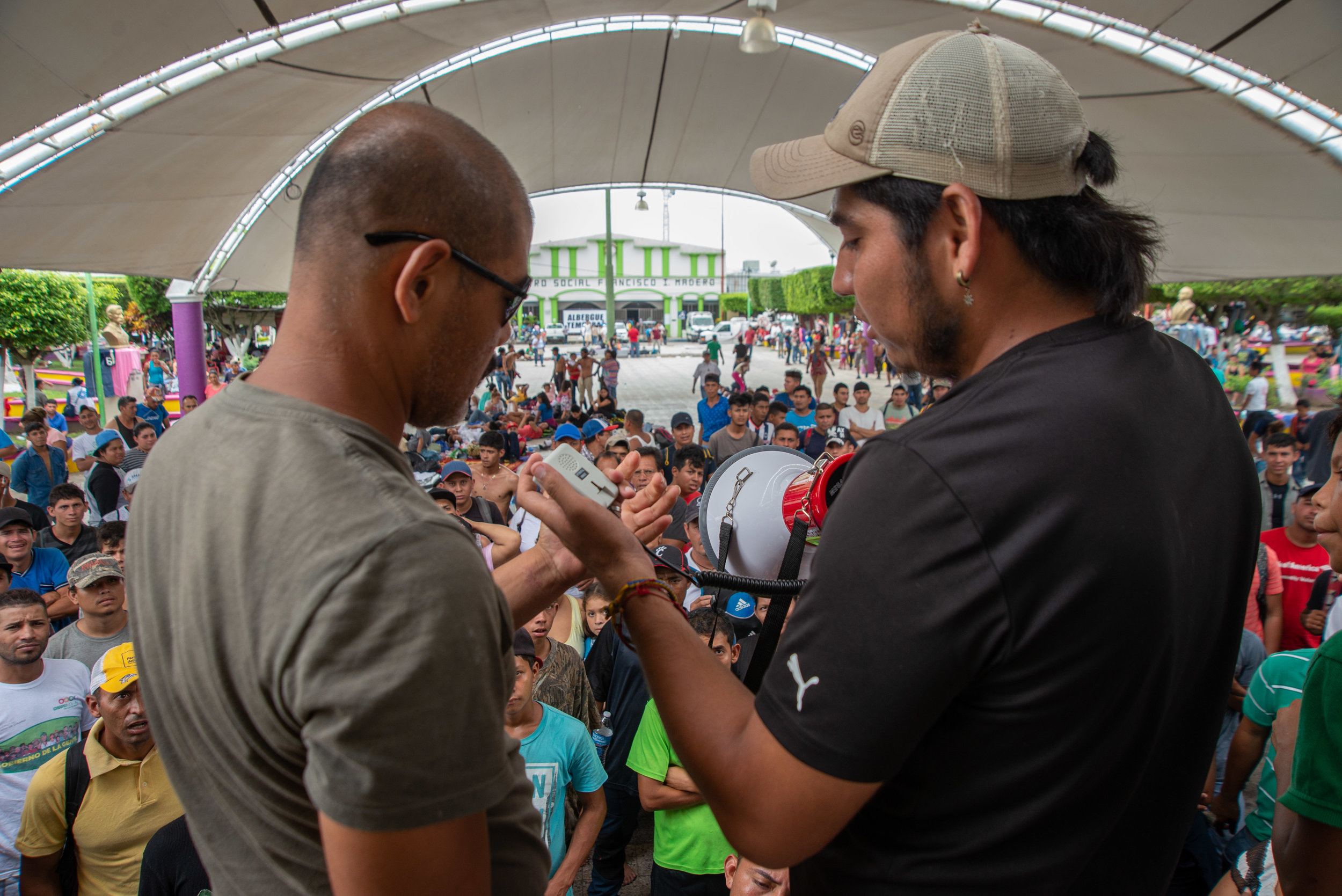
Asamblea en el primer día de la caravana en México. | Assembly on the first day of the caravan in Mexico.
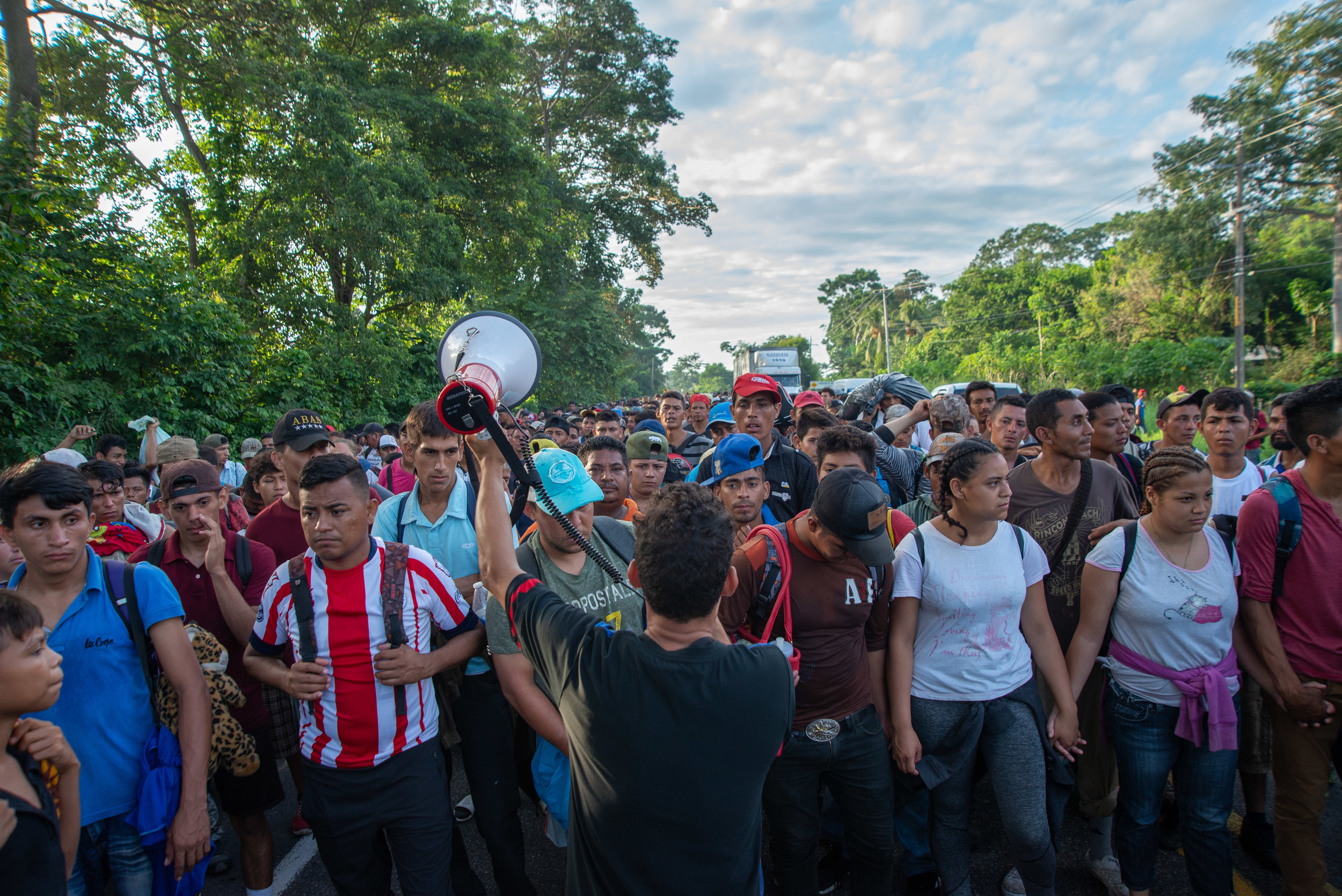
Asamblea en el primer día de la caravana en México. | Assembly on the first day of the caravan in Mexico.
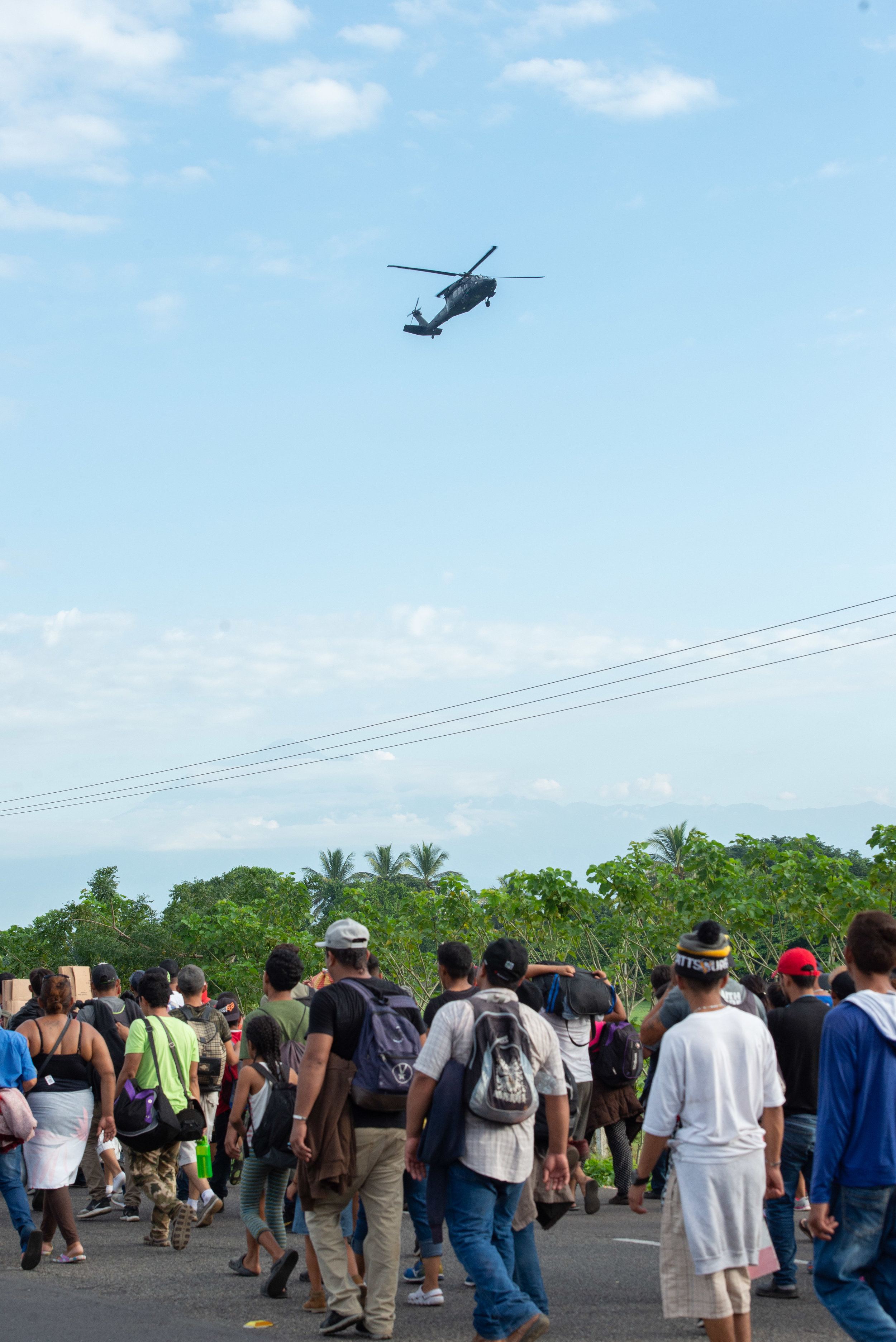
La caravana marcha en México. | The caravan marches in Mexico.
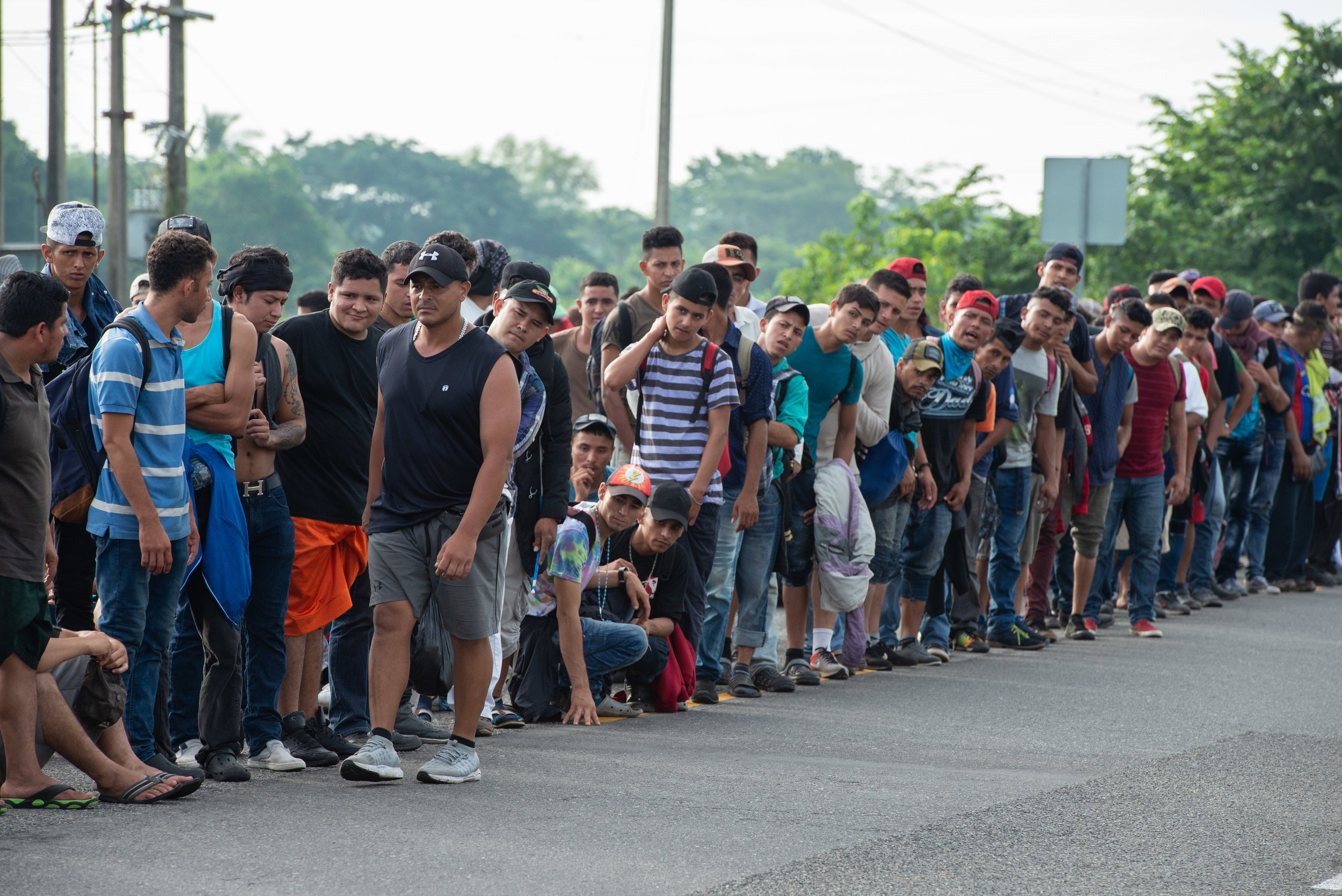
Asamblea en el primer día de la caravana en México. | Assembly on the first day of the caravan in Mexico.
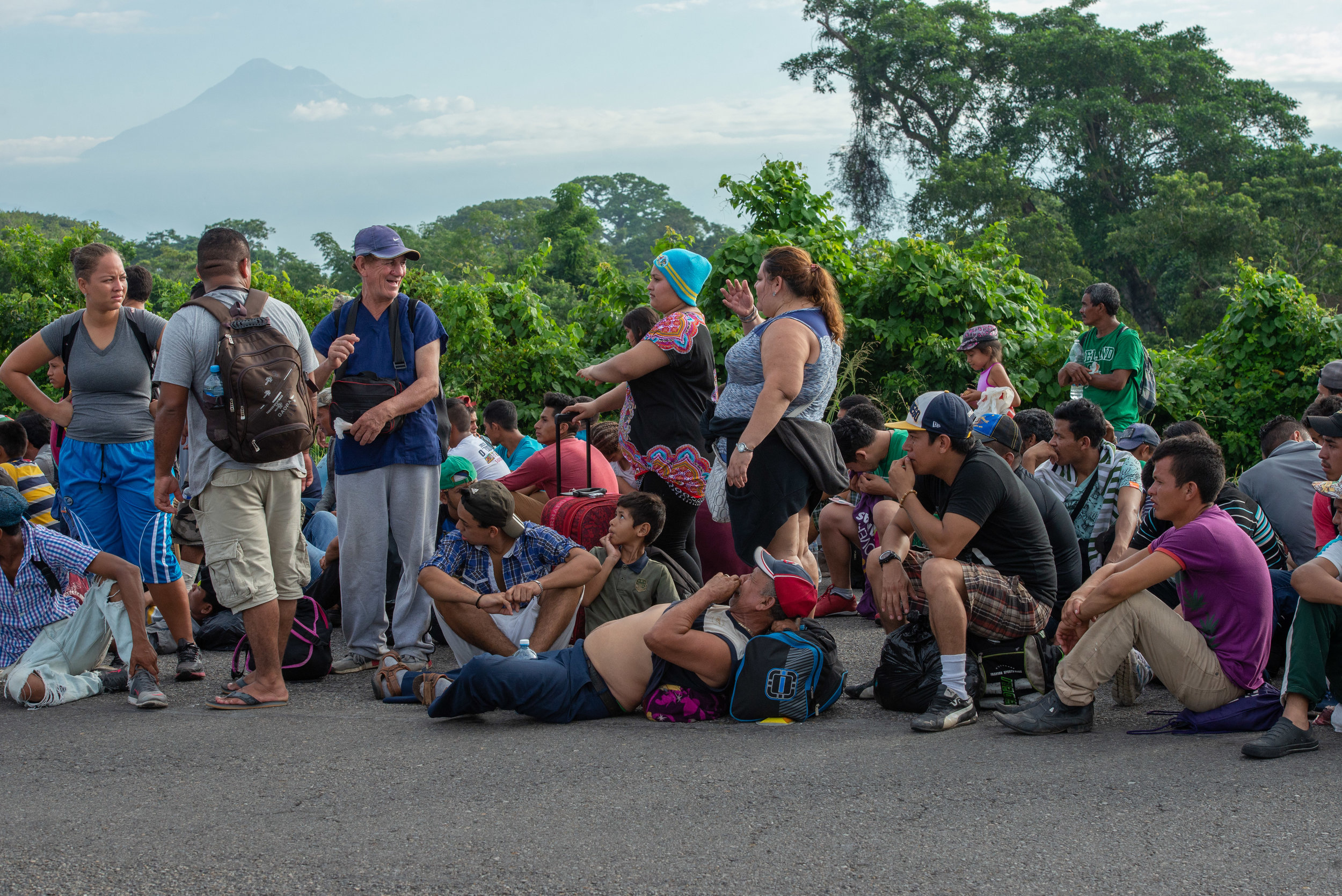
Asamblea en el primer día de la caravana en México. | Assembly on the first day of the caravan in Mexico.
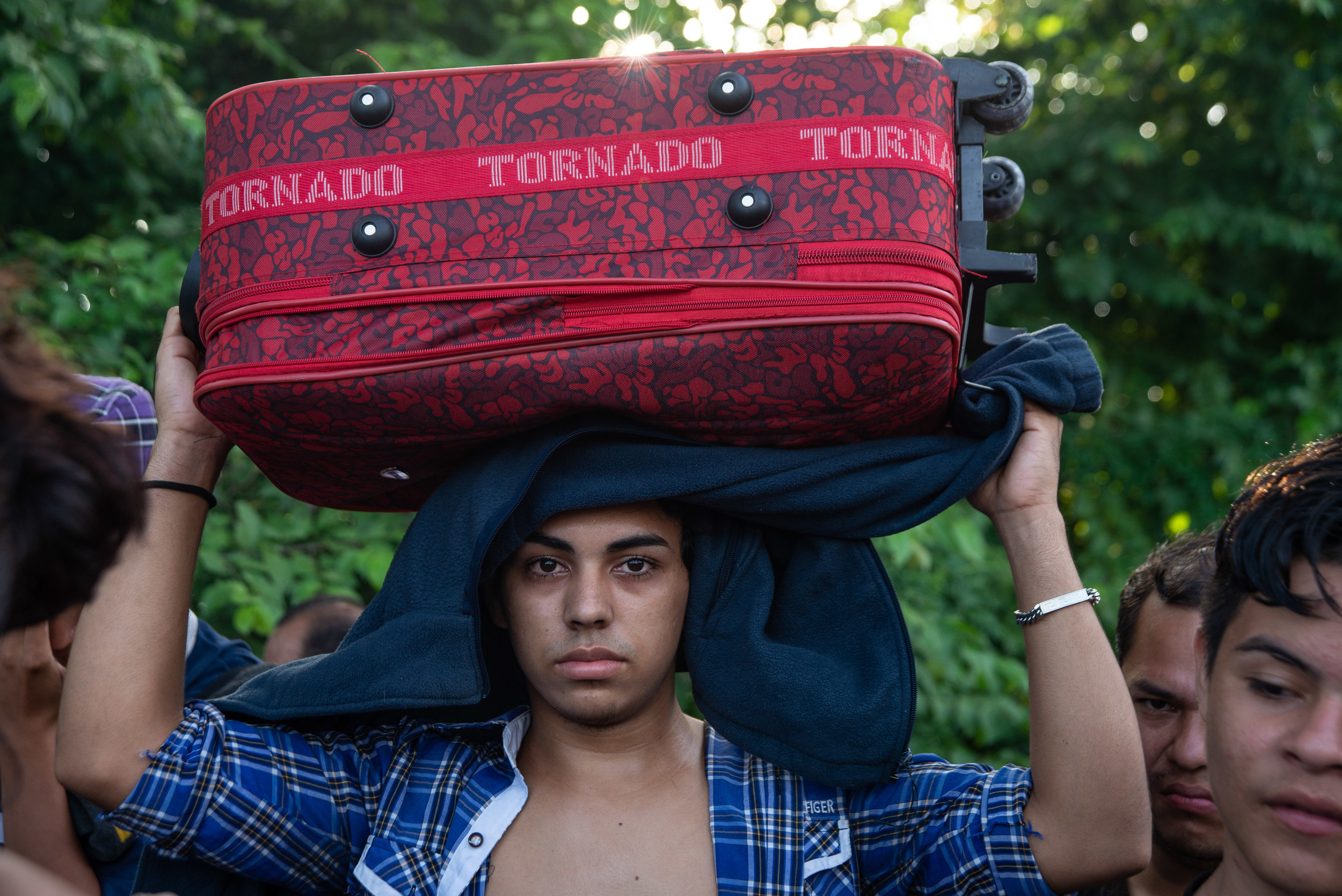
“Tornado de Sueños.” | Tornado of dreams.
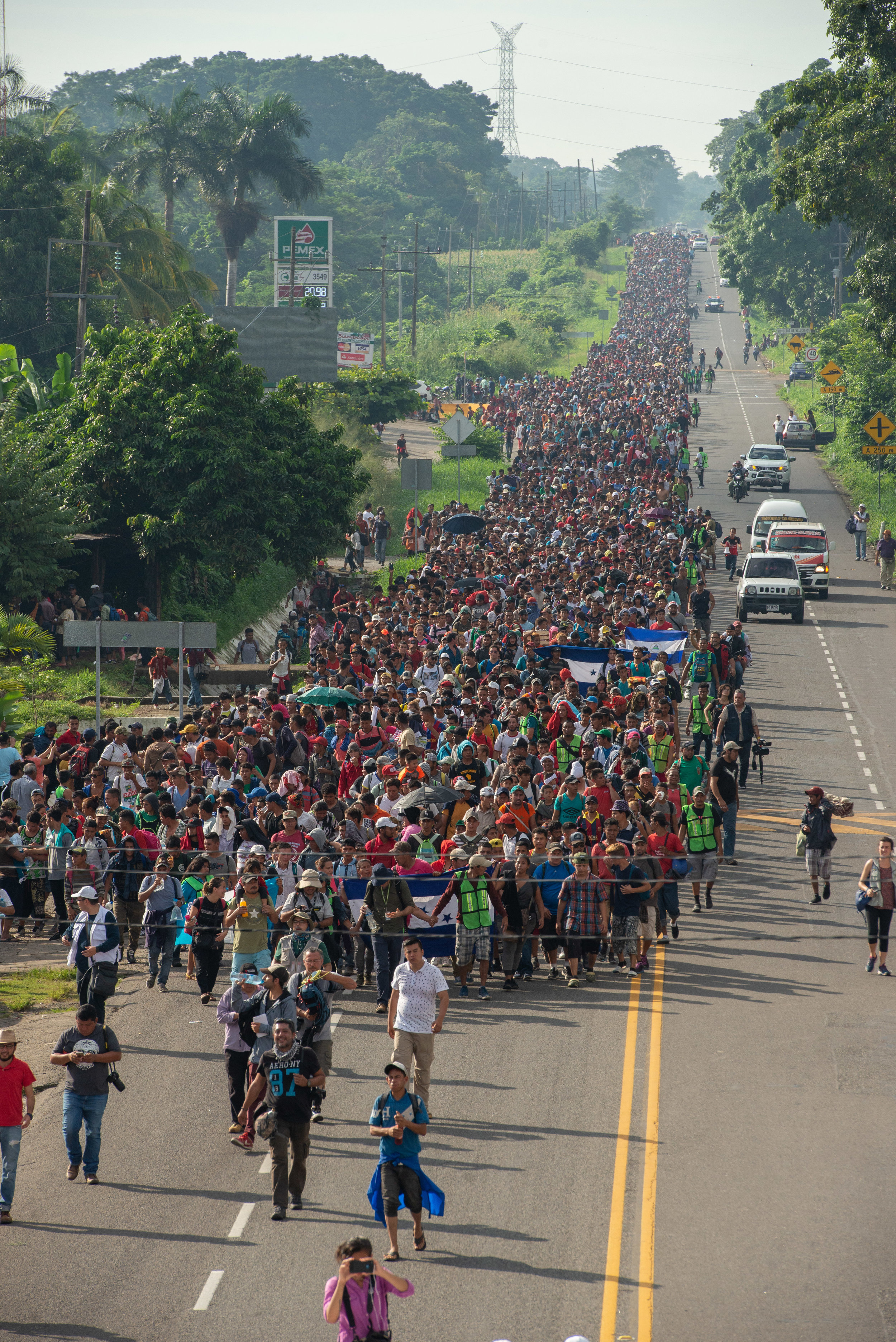
La caravana marcha en México. | The caravan marches in Mexico.
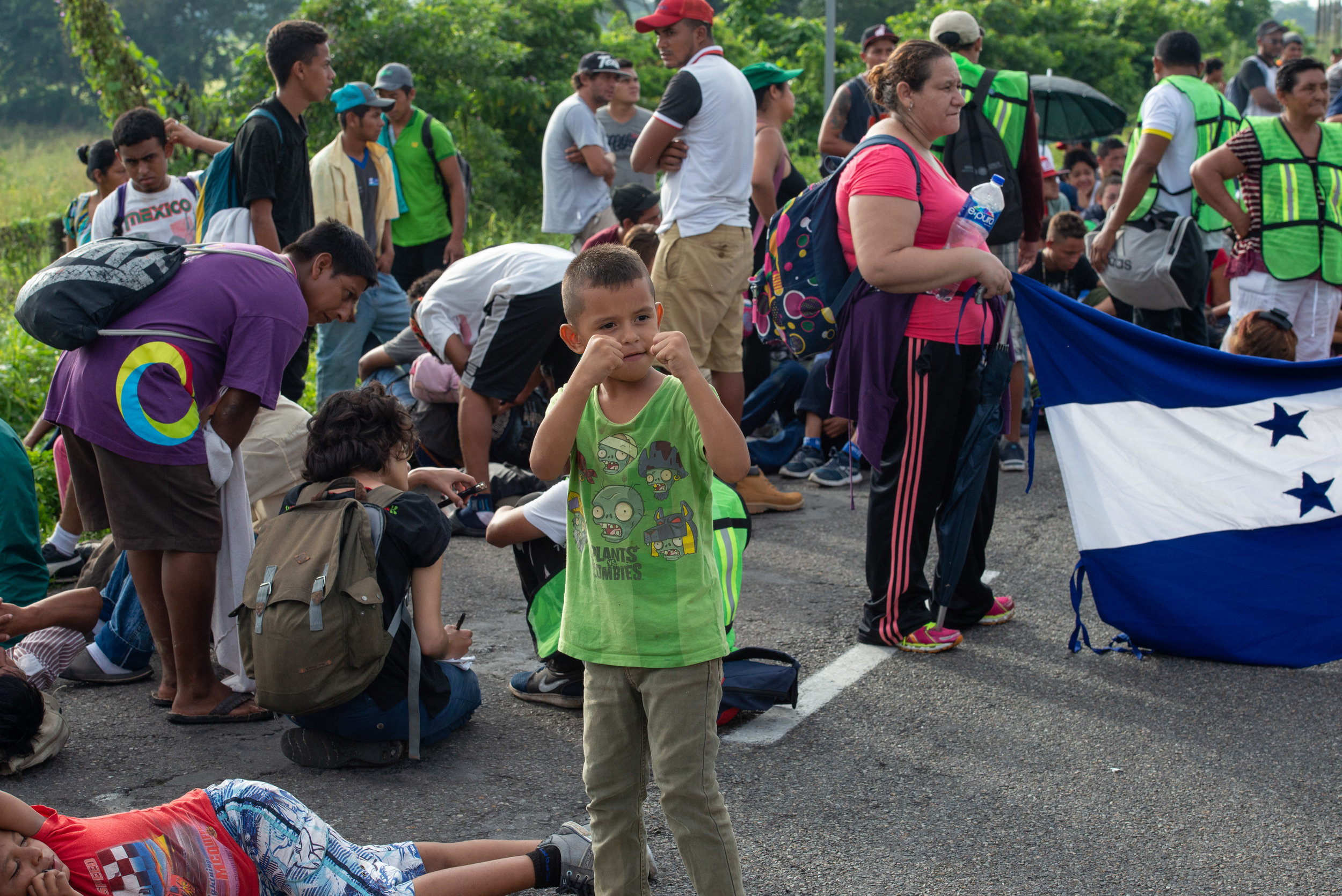
“El defensor de la caravana.” | The defender of the caravan.
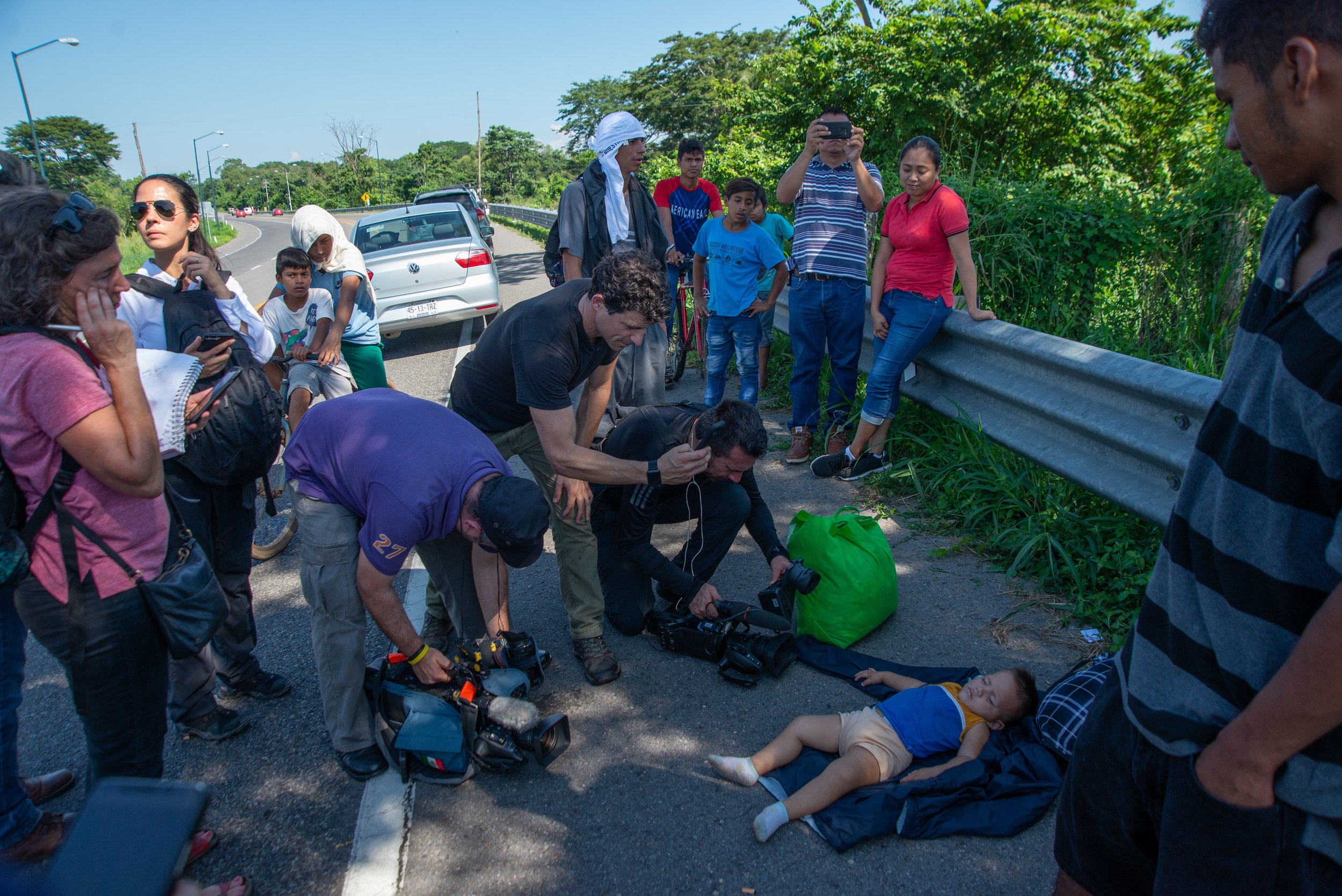
Sensacionalismo de la caravana migrante. | The sensationalism of the migrant caravan in mass media.
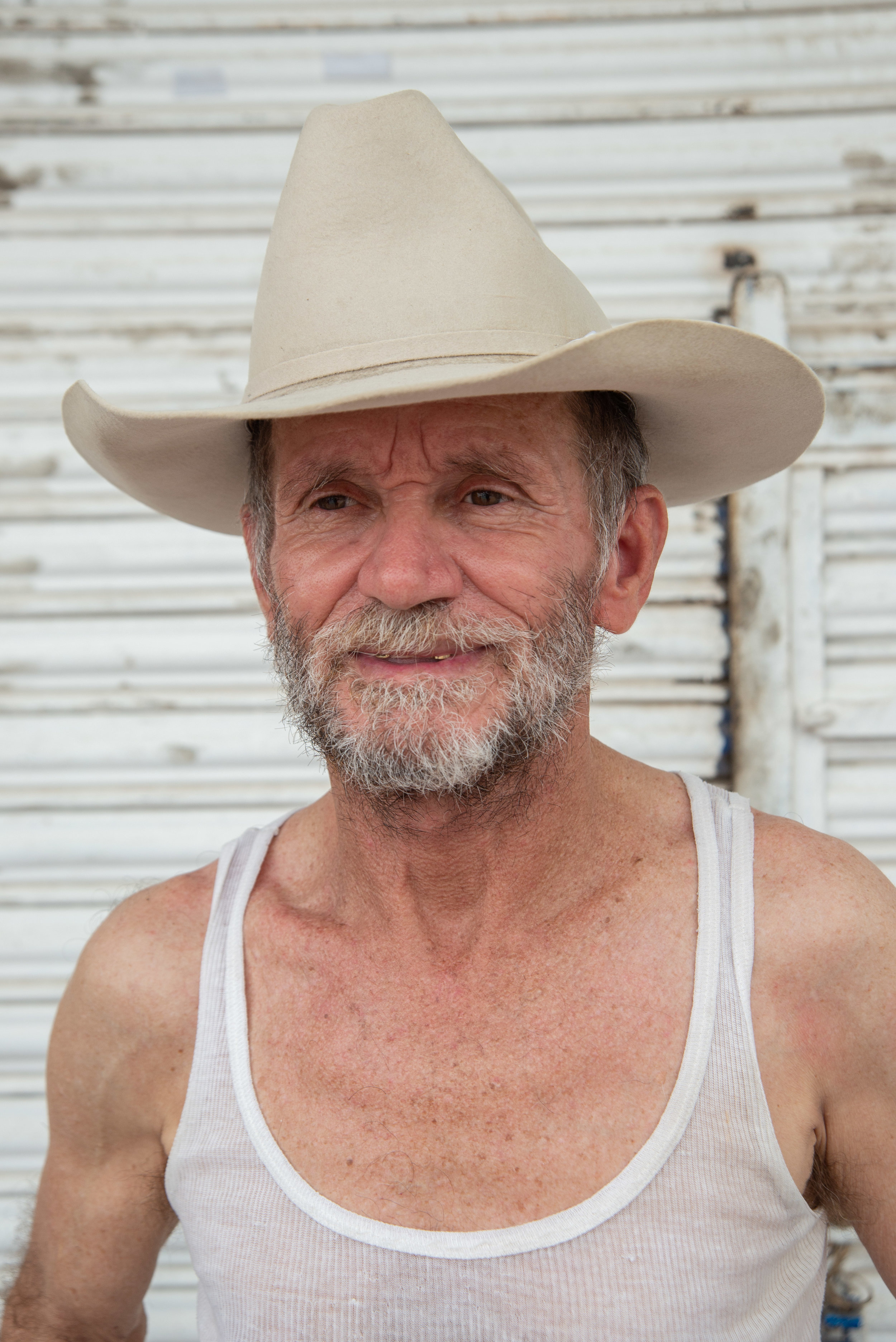
Carlos Humberto Guerra. Originario de Copan, Honduras. | Carlos Humberto Guerra. Originally from Copan, Honduras.
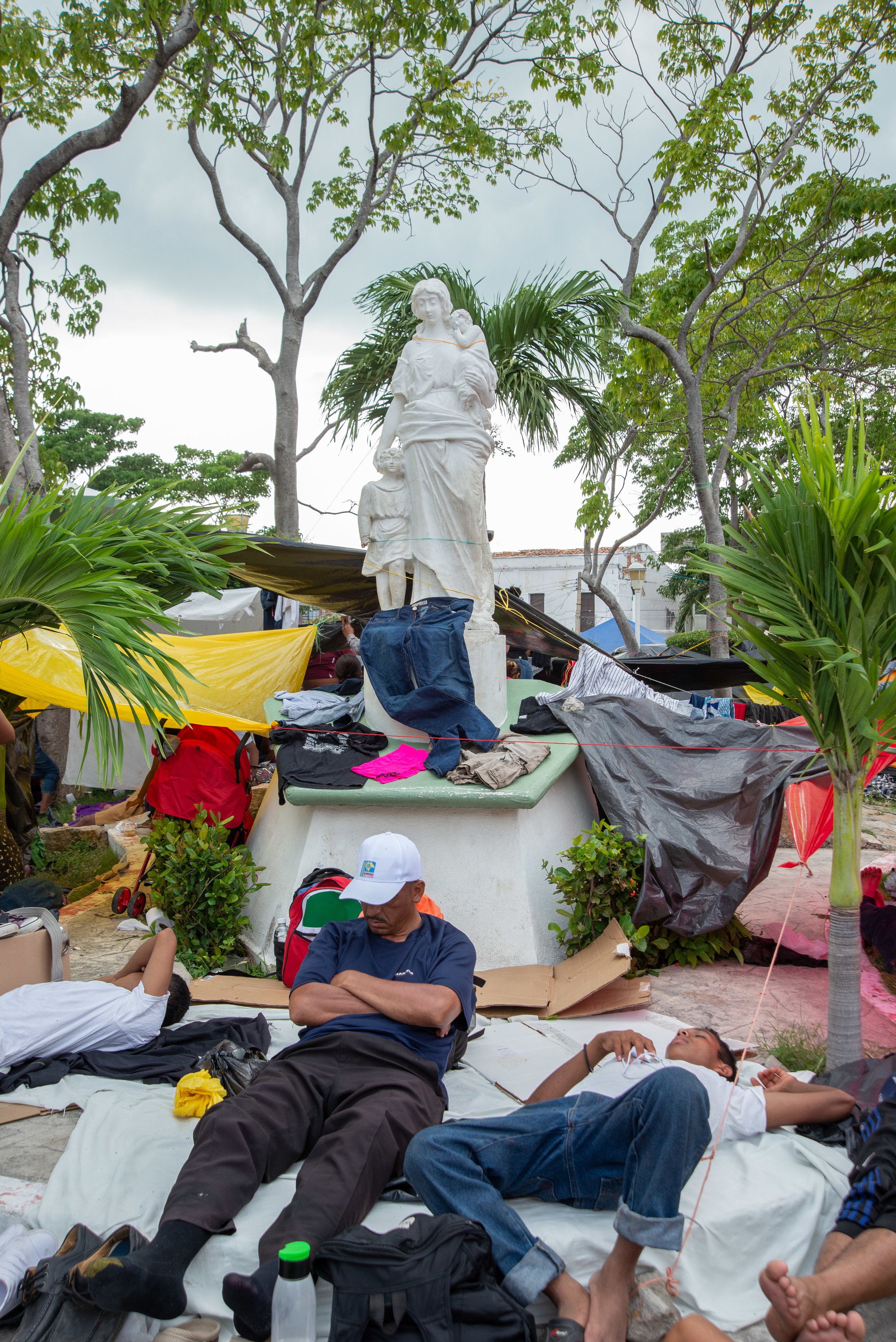
Descansando en Arriaga, Chiapas | Taking a break in Arriaga, Chiapas.
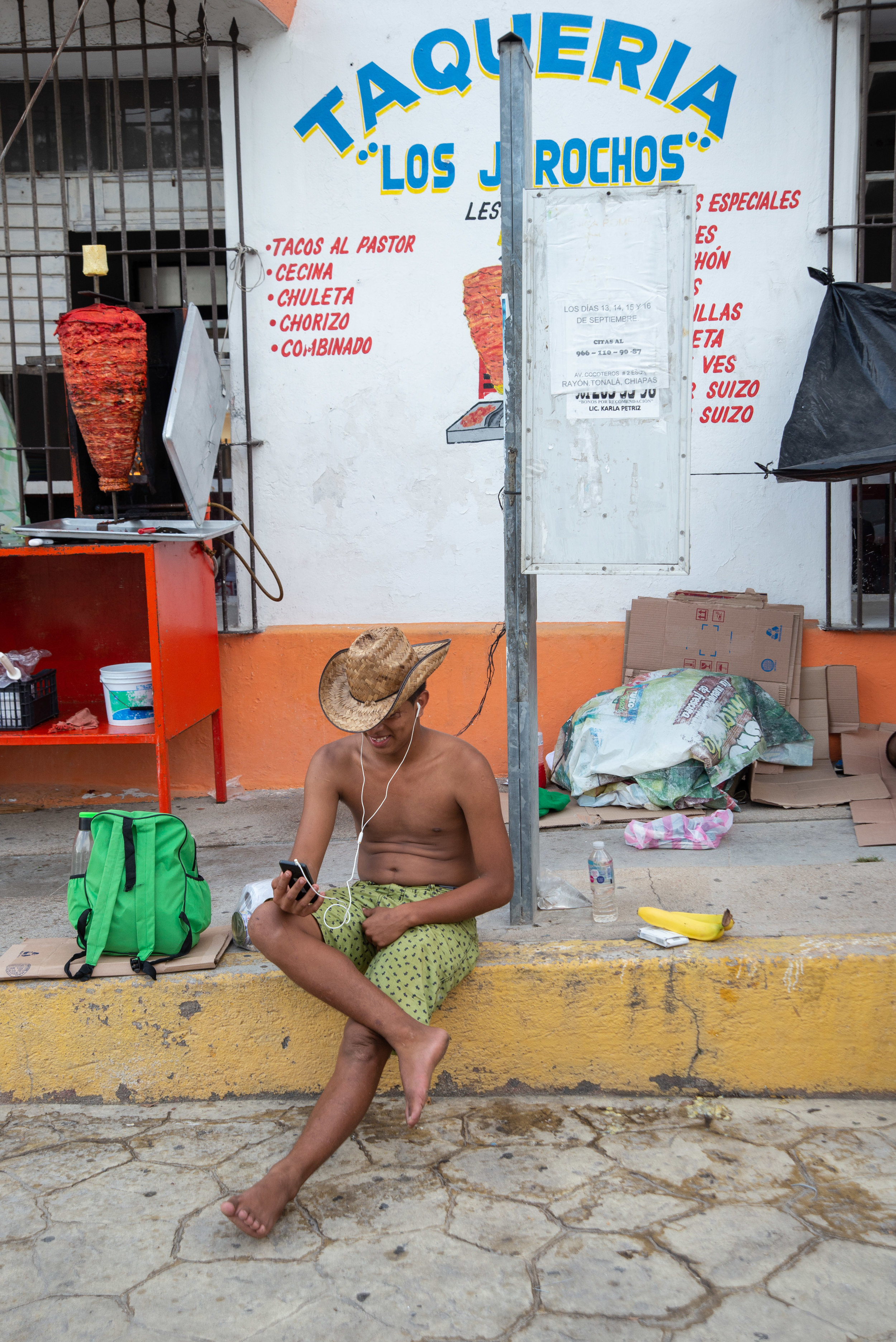
Un miembro de la caravana descansa en Arriaga Chiapas, mientras habla con la familia. | A member of the caravan takes a break in Arriaga Chiapas, while he speaks to family.
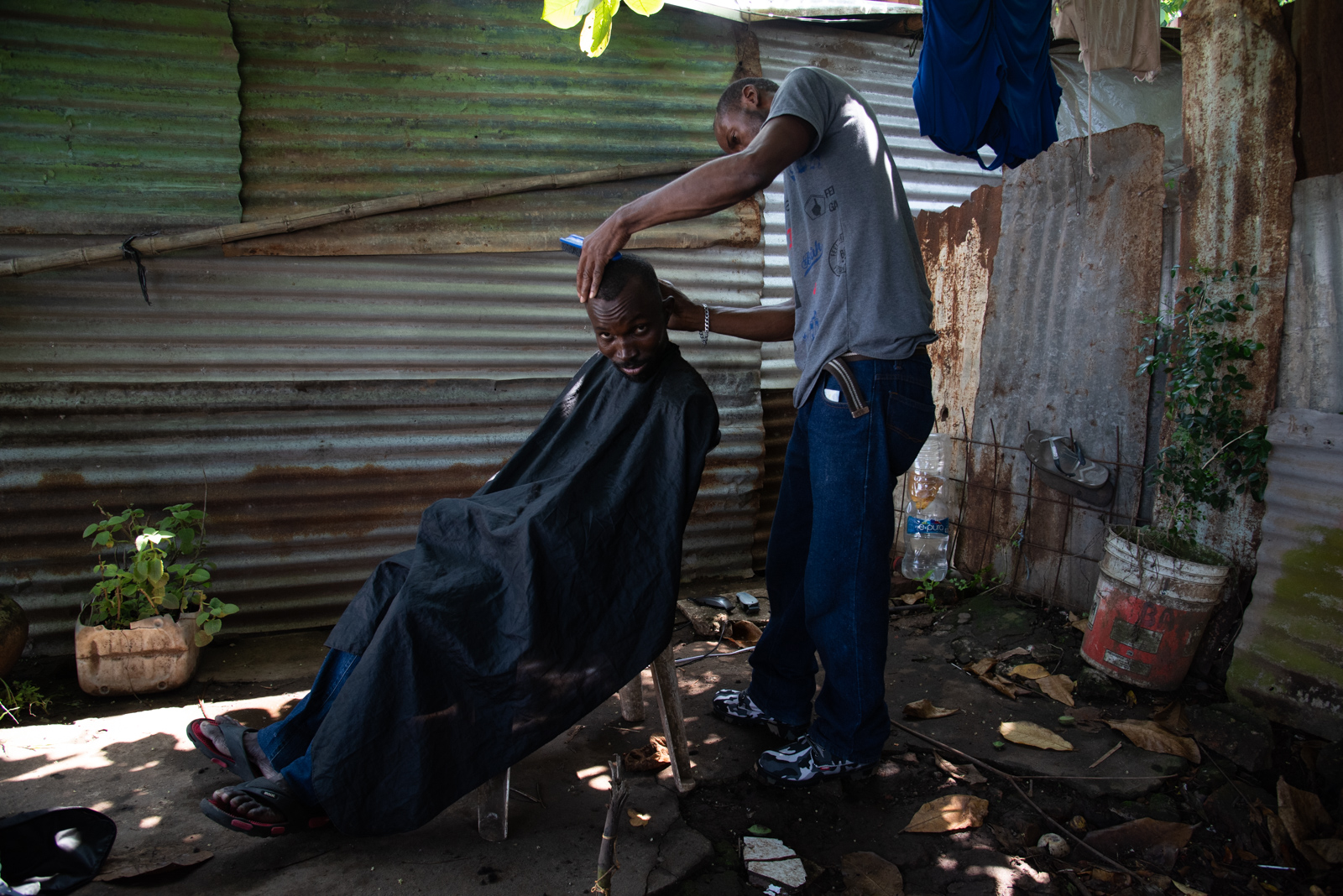
“Franklyn” originario de Haití. Vive en la colonia nueva esperanza. A un costado de la estación migratorio siglo XXI en Tapachula Chiapas. Espera desde hace varios días que le otorguen sus papeles para poder estar de manera legal en México. Mientras tanto se dedica a cortar el pelo. Julio 2019. | “Franklyn”, originally from Haiti. Lives in the neighborhood of New Hope. Next to the detention center in Tapachula Chiapas. He has been waiting several days for his papers to be validated in Mexico to be approved. While he waits, he dedicates his time as a barbar. July 2019.
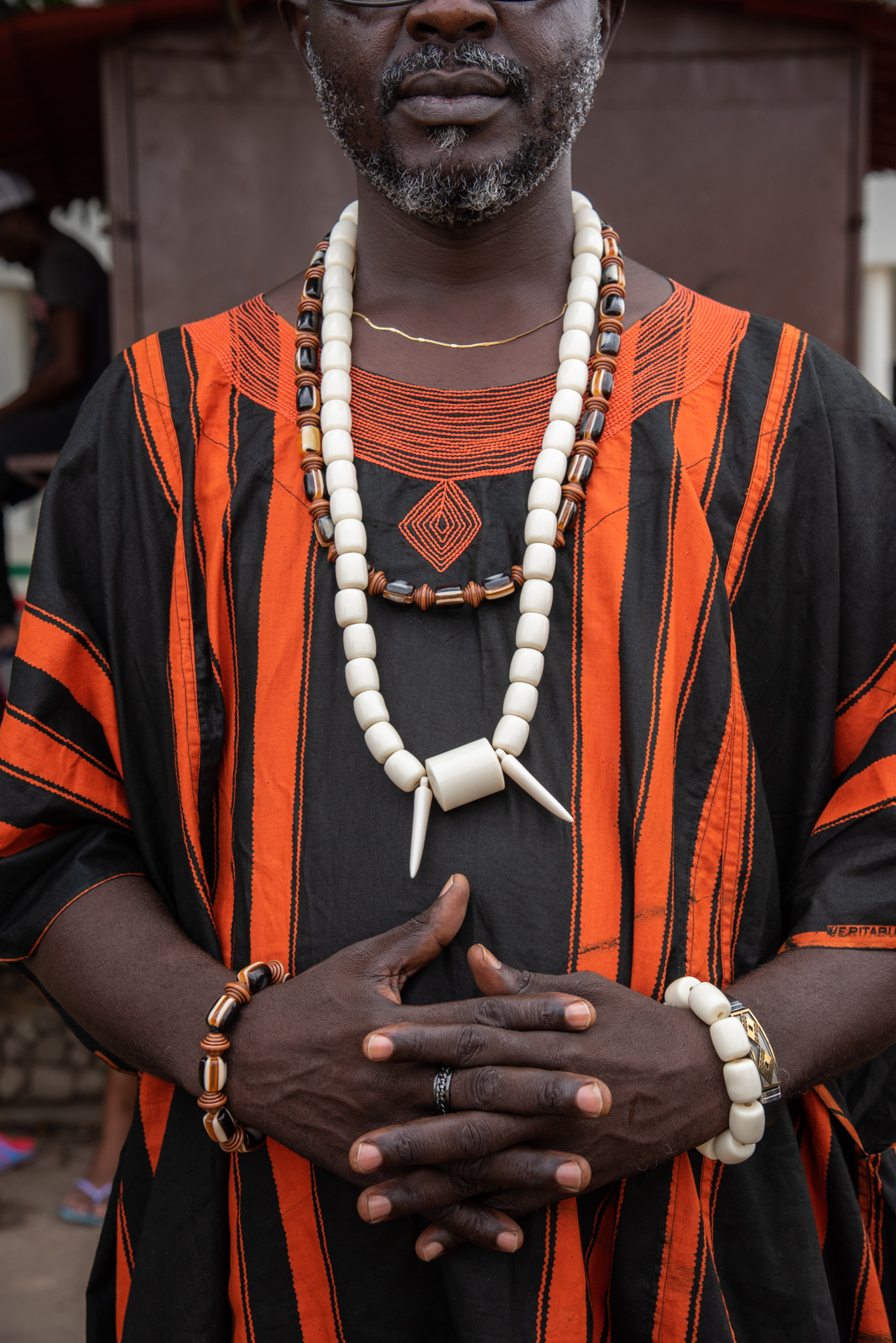
El príncipe migrante afuera del centro de detención del Instituto Nacional de Migración in Tapachula, Chiapas. | The first migrant outside of the National Institute for Migration detention center in Tapachula, Chiapas.
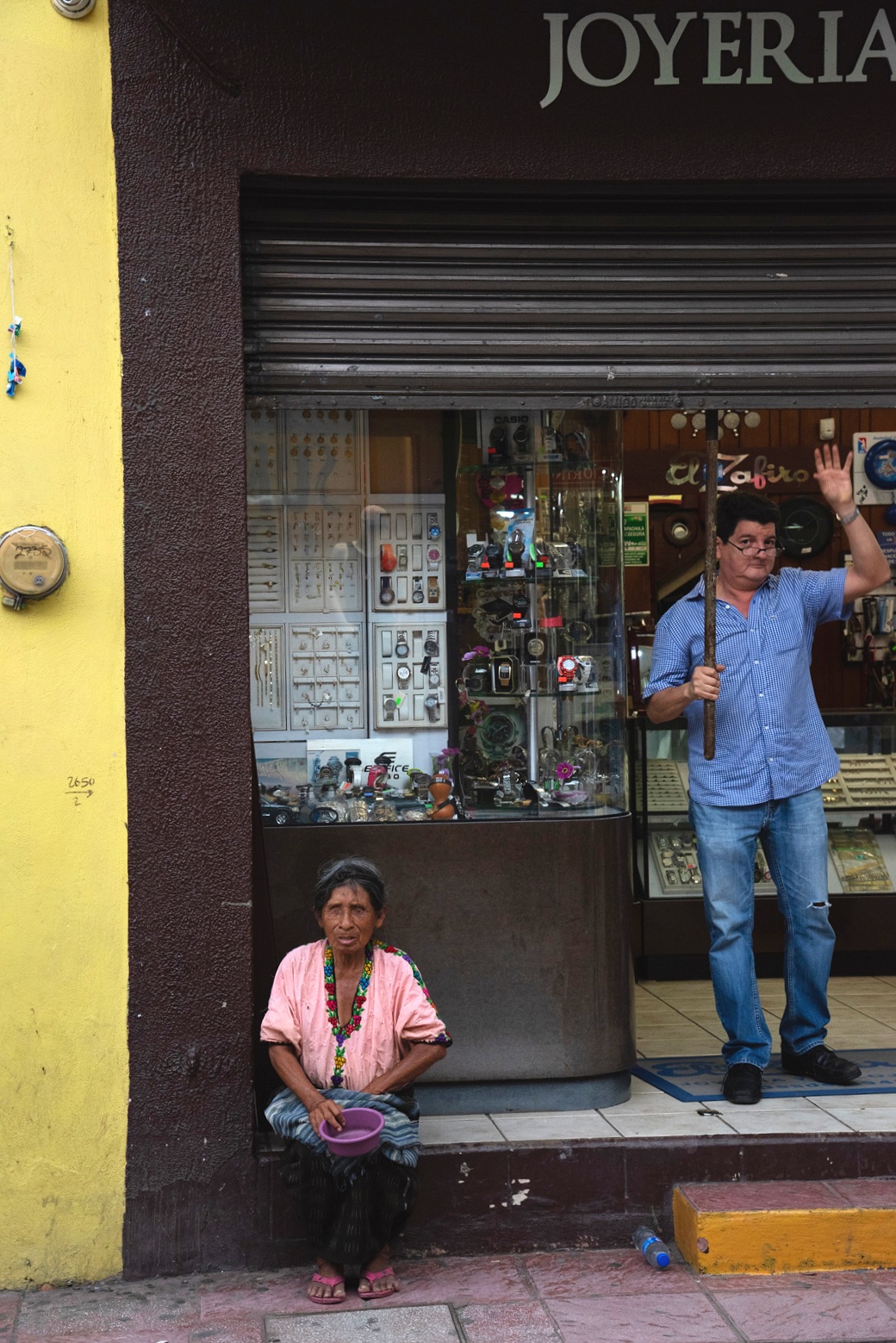
Migraciones cotidianas. Mujer de Guatemala pidiendo dinero en Tapachula, Chiapas. | Everyday migration. Women from Guatemala begging for money in Tapachula, Chiapas.
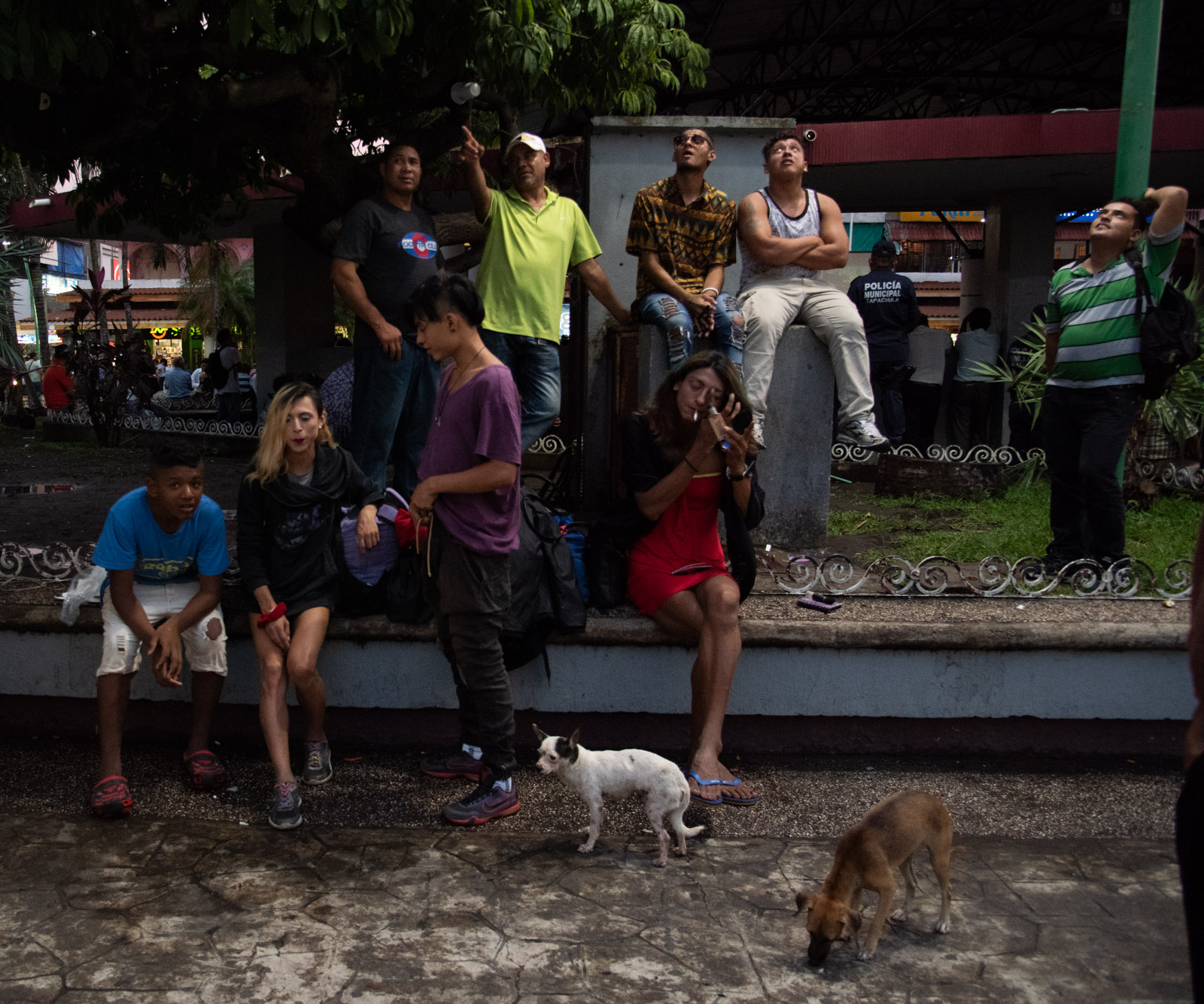
Despertando a la noche. | Waking up the night.



































Background
The experience of migrants and receiving communities along the southern border of Mexico is transforming. Since the most recent wave of migrant caravans began to arrive in Mexico in October 2018, public perceptions of migrants have gone from sympathetic to and even intolerant. As more and more people from diverse cultures, races, ethnicities and backgrounds cross this porous border from countries spanning the globe, mounting tensions between receiving communities and migrants are clearly visible. This influx has been exacerbating tensions that already exist in a multi-lingual, multi-ethnic region that has limited economic opportunities, limited arable land and a persistent history of disputes over territory, representation and livelihoods.
Chiapas is home to 13.5% of Mexico’s indigenous population (INAFED 2011) and there are an estimated 56 linguistic groups. Internal migration has been a persistent part of culture in Chiapas, with many groups traveling seasonally for work to harvest coffee, cacao, and tobacco among other cash crops - what happens when their land is gone when they get home? This complex social microcosm has experienced constant clashes between the forces of globalization, migration and the preservation of local customs, ways of life, and autonomy and it is currently at an important point of transition.
The borderland in Chiapas is an area with weak institutional oversight, and the general sense is that many zones seem to be “ungovernable”. There have been new multi-ethnic communities forming, and the socio-cultural implications of this needs to be documented and studied. We believe the way to bridge the divide between cultures will need to have strong roots in storytelling and cultural exchange to create more empathetic narratives.
The main goal of this project is to humanize the experience of migrants and receiving communities alike, by highlighting stories of resilience. We plan to situate stories within their broader context, and attempt to create opportunities for reflection and exchange between groups, that may reduce stigma around the migratory experience and help to facilitate integration of communities.

